We recently looked at Nvidia's new GeForce RTX 5060 Ti graphics cards in both 8GB and 16GB variants. The 16GB model performs quite well, especially in the current market if it was available for the $430 MSRP. The 8GB model, on the other hand, is a terrible trap for gamers. Even at the $380 MSRP, it is a heavily compromised GPU that will age poorly.
Granted, 8GB is still enough VRAM to play the vast majority of games out there. In fact, you can play any and all games with the right quality settings. However, that doesn't mean those settings are the most appropriate for a brand new $400 GPU.
This inadequacy of new "mid-range" 8GB GPUs is what we explored in our recent review. We demonstrated how compromised the 8GB RTX 5060 Ti is in modern games when using what would otherwise be reasonable quality settings – if only it had enough VRAM. Those same shortcomings are absent in the slightly more expensive 16GB model.
The results were eye-opening for many gamers, especially for those who haven't followed VRAM issues as closely as we have over the past few years.
It's encouraging to see that the overwhelming majority of gamers now agree: 8GB of VRAM in 2025 isn't enough and should not be paired with a GPU priced over $200.
With this in mind, many of you expressed interest in seeing how the 8GB 5060 Ti compares to the Intel Arc B580 in these VRAM-limited scenarios. The B580 was an instant hit, in part because it delivered 12GB of VRAM to the mainstream for just $250. Unfortunately, that price point has rarely been a reality, with B580s typically going for around $330 – at least 32% above MSRP.
It is hard to recommend the B580 at that price, even though the 8GB 5060 Ti costs about 35% more. Keep in mind, though, that when not VRAM-limited, the GeForce GPU is, on average, about 40% faster. But as things currently stand, there is no real alternative to the Intel B580 for those looking to spend less than $400 on a GPU. If you're in that boat, we fully recommend waiting to see what the Radeon RX 9060 series will offer soon.
The Setup
Today's review is purely for science, it's not buying advice. We do not recommend purchasing either the B580 or the 5060 Ti 8GB. Intel's GPU is a great product at the $250 MSRP. If you can find one at that price, we won't regret the purchase. The 5060 Ti 8GB, however, is a steaming pile – even at $380 – so it should be avoided.
What makes this comparison interesting is that the 5060 Ti 8GB should be much faster than the B580 – it's an entire product tier above it, possibly two product tiers.
For example, when not limited by VRAM at 1440p, the GeForce GPU is 60% faster in Counter-Strike 2 and Black Myth: Wukong, 50% faster in God of War Ragnarök, and 30% faster in F1 24 and Kingdom Come: Deliverance II. On average, across a wide range of games, the 5060 Ti is roughly 40% faster.
In the graphs, you'll find data such as average frame rate, 1% low FPS, VRAM usage, and frametime graphs that highlight stuttering and frame pacing issues. These issues are easier to showcase in the video version of this review if you want to check that out.
For context, the RTX 5070 is ~30% faster than the RTX 5060 Ti 16GB, the 5070 Ti is ~20% faster than the 5070, and the RTX 5080 is ~13% faster than the 5070 Ti. Under no circumstances should the 5060 Ti 8GB be slower than the Arc B580 – that simply shouldn't happen. And for the 16GB model, it doesn't. So let's take a look at some of the more VRAM limited scenarios.
For all of this testing, we used the Ryzen 9800X3D and 32GB of DDR5-6000 CL30 memory which is a PCIe 5.0-enabled AM5 system. This represents a best-case scenario for running over the VRAM buffer with the RTX 5060 Ti. Results on a PCIe 4.0 system will be worse – and significantly worse on PCIe 3.0. This setup also provides a best-case scenario for the Intel B580, which requires more CPU resources compared to the 5060 Ti. However, this is a "for science" test examining VRAM usage on two very different GPUs.
Finally, please note that for upscaling, we used DLSS on the 5060 Ti and FSR on the B580. XeSS scales differently from DLSS and FSR. For example, Quality XeSS scales from a lower render resolution than Quality DLSS and FSR, making direct comparisons less precise.
Okay, let's get into it...
Benchmarks
The Last of Us Part II
4K Upscaling Q, Very High Preset
First up, we have The Last of Us Part II at 4K with quality upscaling, using the very high preset. Performance from either GPU isn't particularly good here. Even the B580 appears to be running into VRAM limits, with regular frame time spikes suggesting that 16GB of VRAM is really needed to play under these conditions.
Still, while neither GPU performed well, the B580 actually fared better than the RTX 5060 Ti – something we would never expect. However, the situation here is far from ideal, so it's difficult to consider this a win for the B580. Let's try again at 1440p.
1440p Upscaling Q, Very High Preset
At 1440p with quality upscaling, the B580 achieved 82 fps on average, offering very playable performance. More importantly, we recorded 1% lows of 68 fps with no frame time spikes or other issues – the experience was excellent.
The 5060 Ti 8GB, on the other hand, was a disaster, suffering regular frame time issues. Its 1% lows lagged behind by about 60%, making the overall experience much worse despite similar average frame rates.
1440p Upscaling Q, High Preset
Dropping to the high preset yielded similar average frame rates between the two GPUs. The B580 was slightly better in terms of 1% lows, but the 5060 Ti was 18% faster on average. Still, considering the 5060 Ti should be about 40% faster across both metrics, VRAM capacity clearly remained a major issue.
1440p Upscaling Q, Medium Preset
Even on the medium preset, we found – as in previous 8GB vs. 16GB comparisons – that 8GB of VRAM wasn't enough. The 5060 Ti was only 28% faster than the B580 in average frame rates and 16% faster for 1% lows.
1440p Upscaling Q, Low Preset
The low preset still demands considerable VRAM. Although the 8GB 5060 Ti performed well, it was only 23% faster in average frame rates and 20% faster for the 1% lows compared to the B580.
1080p Native, Very High Preset
At native 1080p using the very high preset, the 8GB 5060 Ti performed poorly, while the B580 ran smoothly. The B580 was 12% faster on average and an astonishing 540% faster for the 1% lows. This likely previews how these GPUs will compare in a few years, even at 1080p with reduced quality settings.
Final Fantasy 16
1080p Native, Ultra Preset
Final Fantasy 16 is another VRAM-intensive title, even at 1080p. Despite having sufficient VRAM, the B580 struggled using the ultra preset. As a result, the 8GB 5060 Ti was faster, though only by a modest 17%.
1440p Native, Ultra Preset
At 1440p, the 8GB 5060 Ti faltered, making the B580 technically better. The B580 averaged 37 fps with 1% lows of 27 fps – mediocre performance, though the lows were 125% higher than those of the GeForce GPU.
1440p Upscaling Q, Ultra Preset
Enabling quality upscaling at 1440p drastically improved the B580's performance, delivering around 60 fps and surpassing the 8GB 5060 Ti by 46% – a margin that should never have been possible given the hardware tiers.
Indiana Jones and the Great Circle
1080p Native, Medium Preset
At 1080p, the 5060 Ti 8GB outperformed the B580 by 46% in average frame rates and 60% in 1% lows under VRAM-constrained conditions.
1440p Native, Medium Preset
At 1440p, the 5060 Ti 8GB hit a VRAM wall, allowing the B580 to pull ahead by 12%. The B580 also handled higher presets at 1080p, which the GeForce GPU could not.
Hogwarts Legacy
1440p Native, Ultra Preset
At 1440p ultra, the B580 struggled, giving the 5060 Ti a 20% win, though 1% lows improved by only 5%.
1440p Native, High Preset, RT High
Neither GPU handled this preset well; both required more VRAM. The B580 produced better 1% lows despite overall weak performance.
1440p Native, Medium Preset, RT Medium
At medium settings with medium ray tracing, both GPUs delivered similar 1% lows, but the 5060 Ti was 27% faster on average.
Horizon Forbidden West
4K Upscaling P, Very High Preset
At 4K with performance upscaling, the 8GB 5060 Ti was unusable. The B580 managed 56 fps with smooth frame times, offering a 273% advantage.
1440p Upscaling Q, Very High Preset
Dropping to 1440p, the B580 averaged 68 fps – a 152% increase in average frame rate and 241% improvement in 1% lows over the 5060 Ti.
1080p Native, Very High Preset
At native 1080p, the B580 maintained a significant lead, offering almost 70% better 1% lows and a smoother experience overall.
1440p Upscaling Q, High Preset
Here, the B580 delivered 76 fps on average and 62 fps for 1% lows, beating the 5060 Ti by 85% and 130%, respectively.
1440p Upscaling Q, Medium Preset
Only after dropping to the medium preset did the 8GB 5060 Ti surpass the B580, improving average frame rates by 22% and 1% lows by 18%.
Space Marine 2
4K Upscaling Q, Ultra Preset, 4K Textures
At 4K with quality upscaling, the B580 technically ran worse than the 5060 Ti, but it rendered textures correctly. The 8GB 5060 Ti discarded high-resolution textures to avoid catastrophic performance, resulting in an unacceptably blurry presentation.
Assassin's Creed Shadows
1440p Upscaling B, Very High Preset
Neither GPU performed well here, but the 5060 Ti slightly outpaced the B580 despite exceeding its VRAM limits.
Cyberpunk 2077
1440p Upscaling Q, Ray Tracing: Medium
The B580 provided a smoother experience with 1% lows 87% higher than the 5060 Ti, which was essentially unplayable.
4K Upscaling P, Ray Tracing: Low
At 4K, the B580 again outperformed the 5060 Ti when ray tracing was enabled.
Marvel Rivals
4K Upscaling P, Ultra Preset
Neither GPU excelled here, but the B580 delivered 37% better 1% low performance. Lowering resolution and quality would see the 5060 Ti pull ahead once within its VRAM limits.
Spider-Man 2
Native 1080p, Very High Preset
The 8GB 5060 Ti struggled but performed similarly to the B580. The Arc GPU faced driver-related issues, especially with rendering trees, causing inconsistent performance even at high presets.
What We Learned
So there you have it. Despite being at least one performance tier above the B580, the 8GB version of the 5060 Ti can still end up slower – and in some instances, so much slower that we are comparing unplayable performance with highly playable performance.
Of the games tested here, The Last of Us Part II and Horizon Forbidden West were by far the worst for the 8GB 5060 Ti. Even in cases where performance was similar or the 5060 Ti led by less than a 20% margin, the results were still disappointing for the GeForce GPU. Realistically, it should be at least 30% faster.
While admittedly we have to cherry-pick examples where the B580 can beat the 8GB 5060 Ti, it is insane that such examples even exist. Under no circumstances should a new RTX 5060-class GPU priced around $400 end up slower than the B580.
Some of the worst results were seen at 1080p. Take Horizon Forbidden West, for example: using the very high preset in a demanding section of the game, the Arc GPU averaged 71 fps – making it up to 70% faster than the 8GB 5060 Ti. Meanwhile, the GeForce GPU delivered a suboptimal experience with noticeable frame time issues.
Previous-gen 16GB RTX 4060 Ti models (second-hand) currently sell for over 40% more, on average, than the 8GB versions...
The fact that we're able to produce these real-world results right now, at launch, means the 8GB 5060 Ti will unquestionably age very poorly. In fact, next to AMD's Radeon RX 6500 XT 4GB, the 8GB 5060 Ti might be the worst mainstream GPU we have ever tested. We cannot imagine paying $430 for one today with the expectation of keeping it for the next few years.
Even for esports gamers, the 8GB 5060 Ti is about the dumbest purchase you can make. At the time of writing this review, the 5060 Ti 16GB version can be purchased for $490 – a 14% premium over the 8GB model. While saving $60 might seem meaningful, it becomes insignificant over the product's lifespan. Second-hand 16GB 4060 Ti models currently sell for over 40% more, on average, than the 8GB versions.
Therefore, we can expect 8GB 5060 Ti cards to be nearly worthless on the second-hand market compared to their 16GB counterparts in just a few years. We'd even argue few people want them even now. If you are buying an 8GB 5060 Ti today, it is almost certainly by accident.

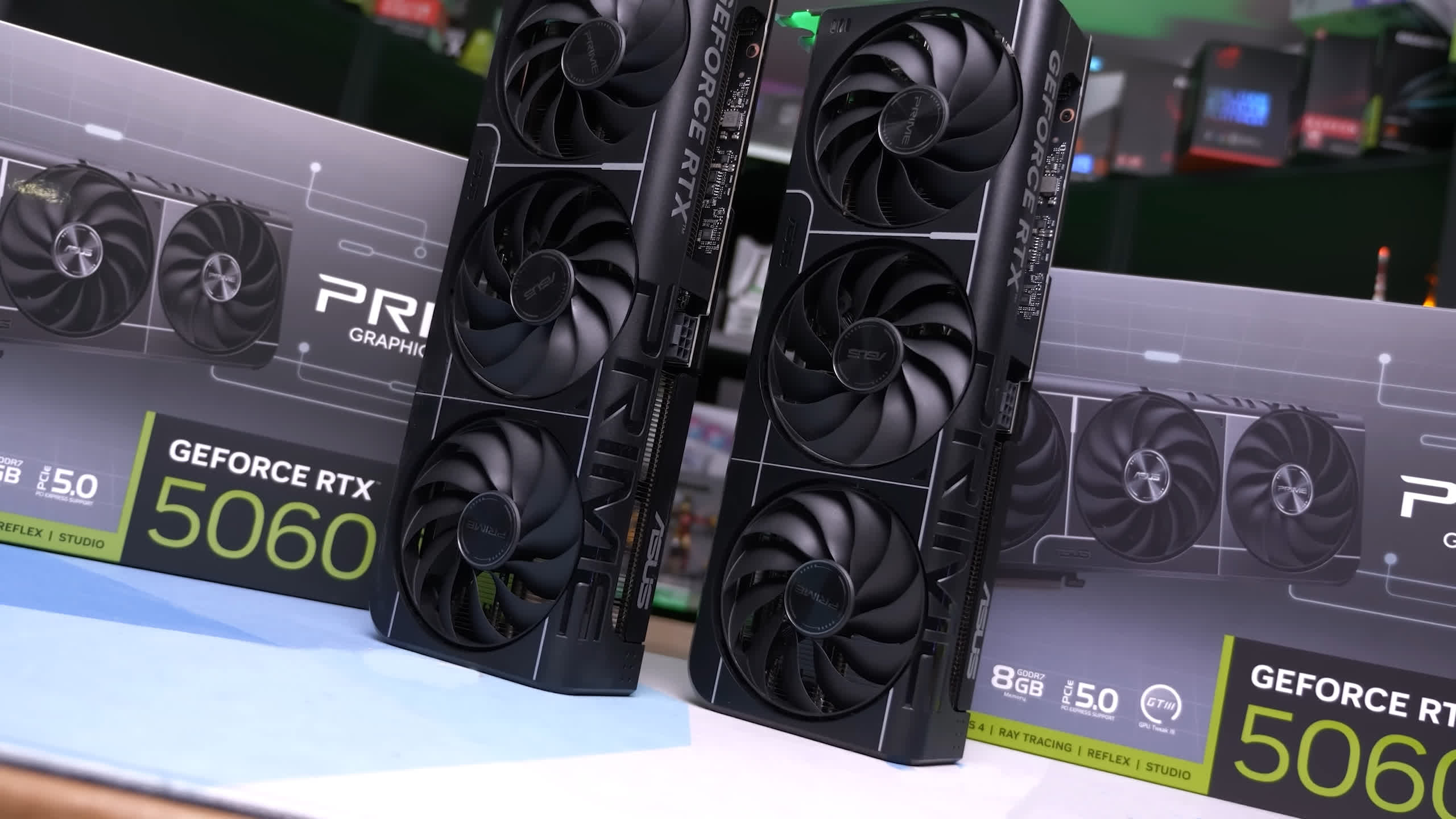
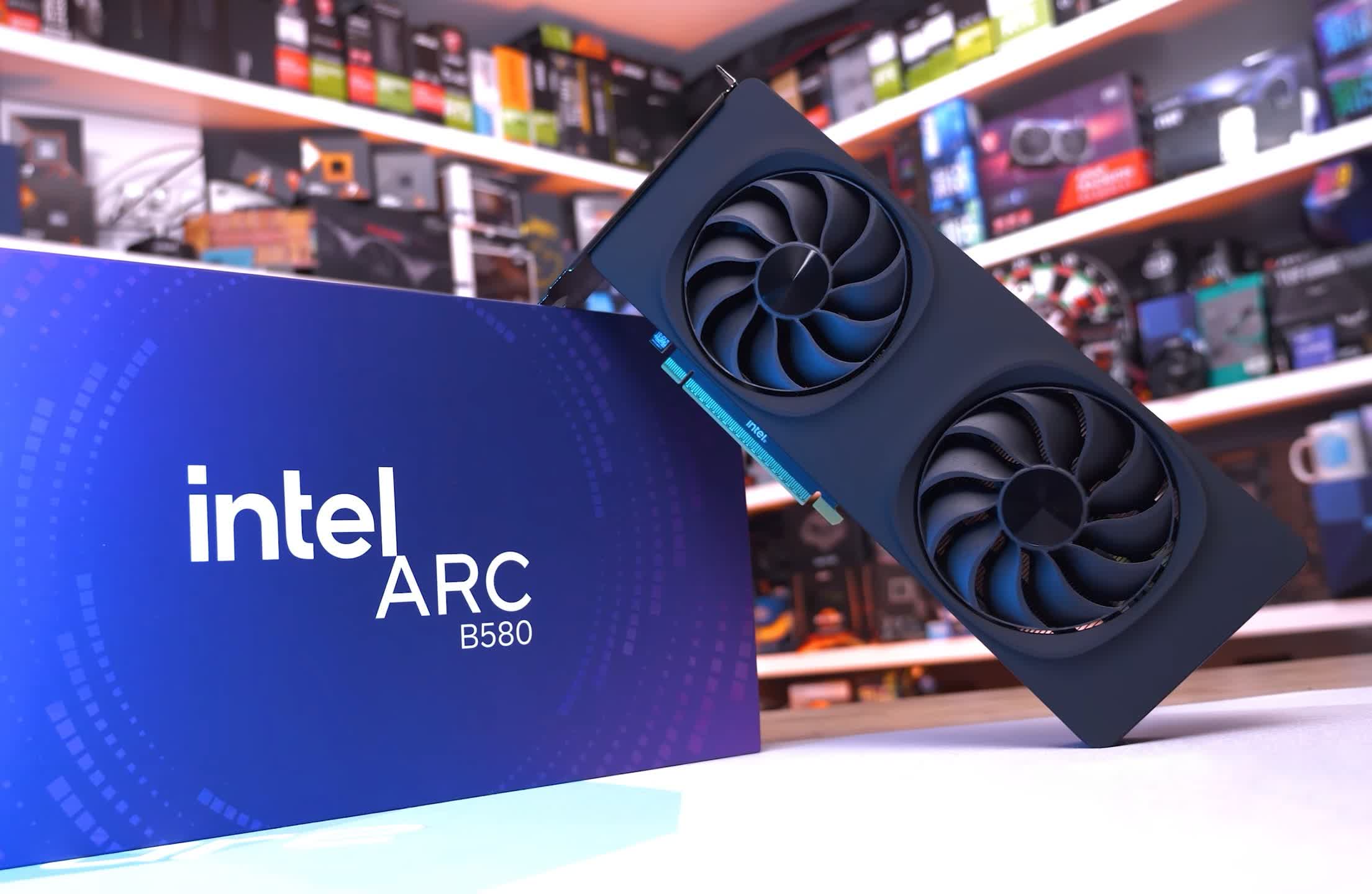
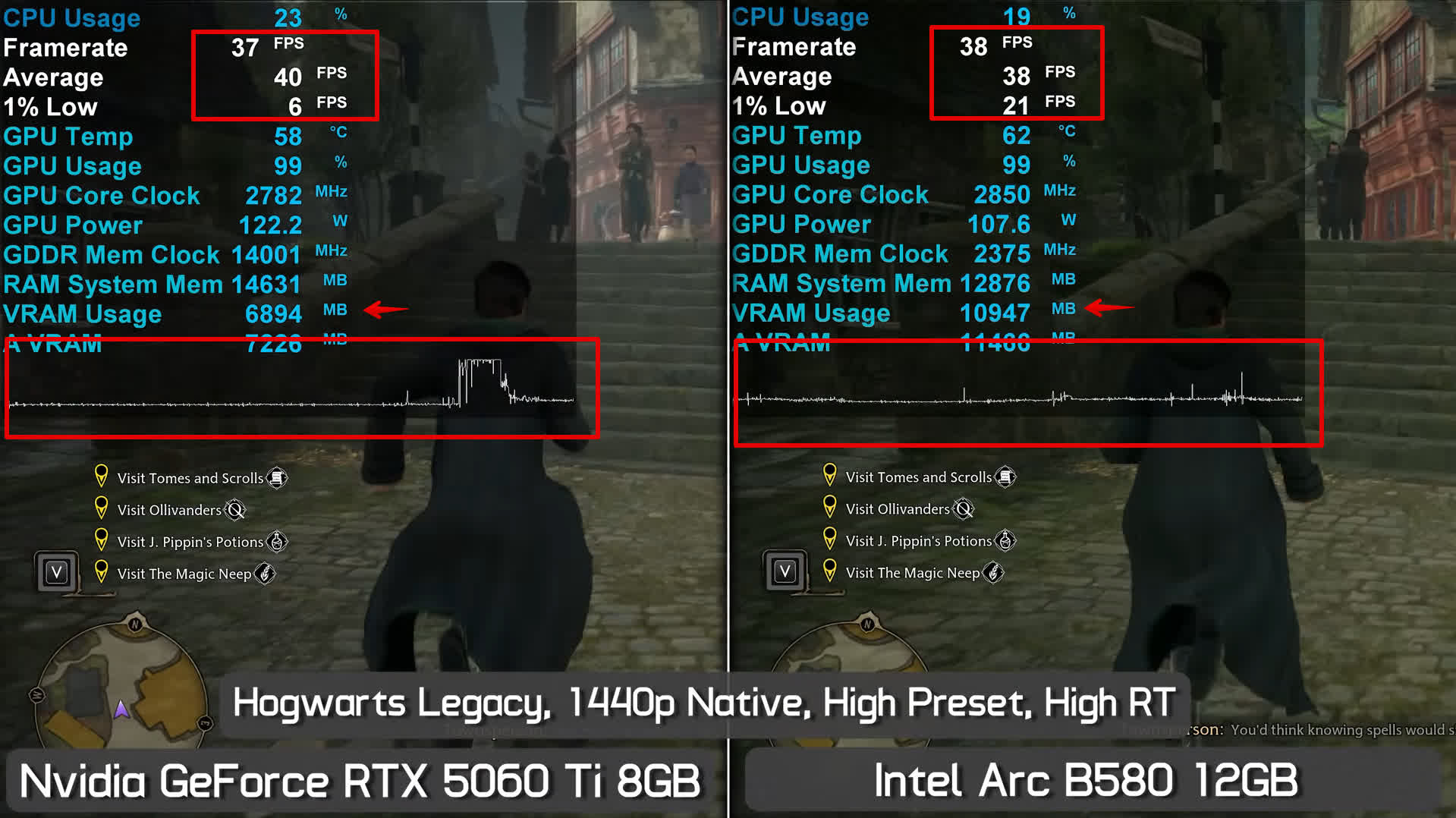
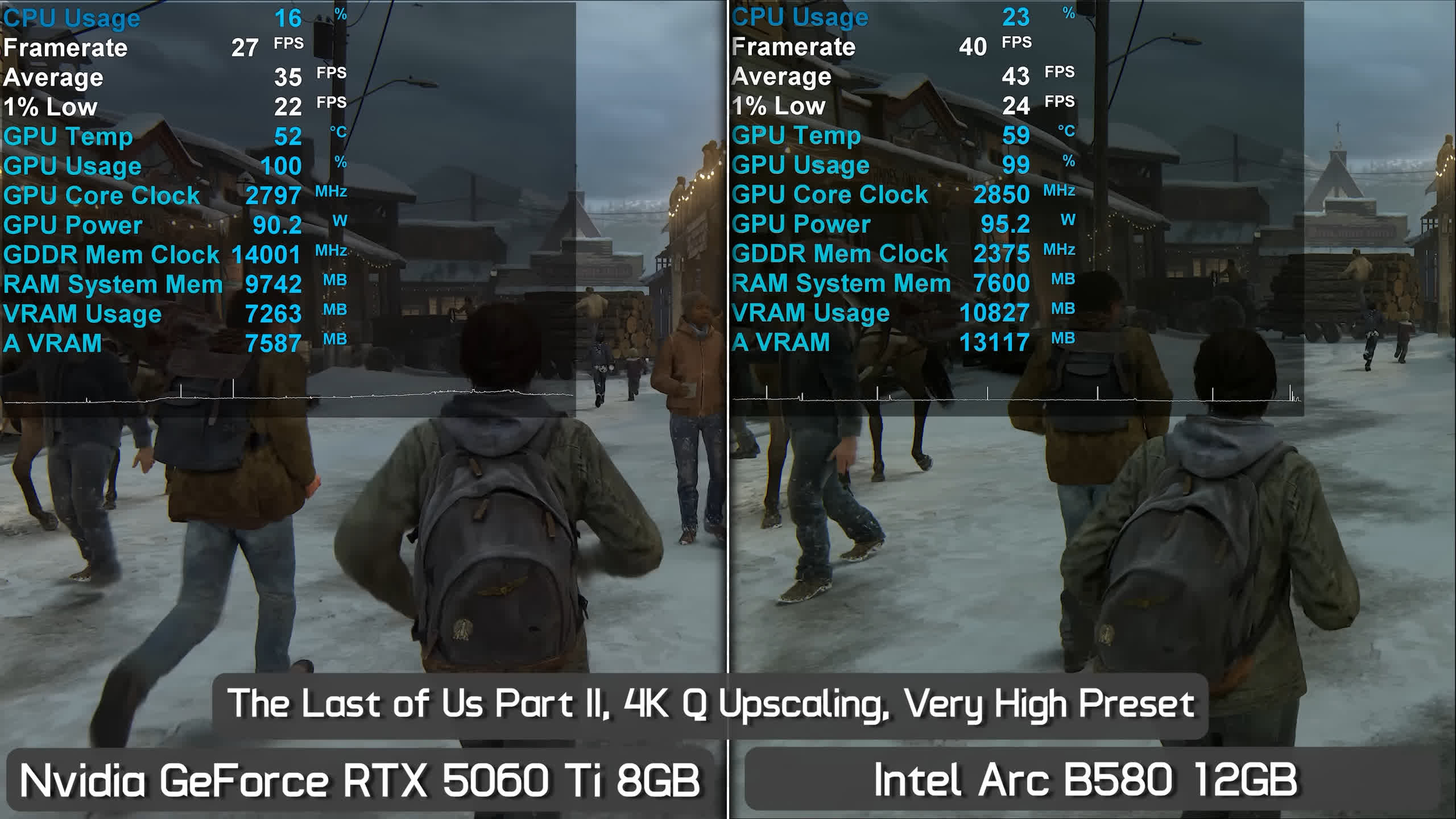
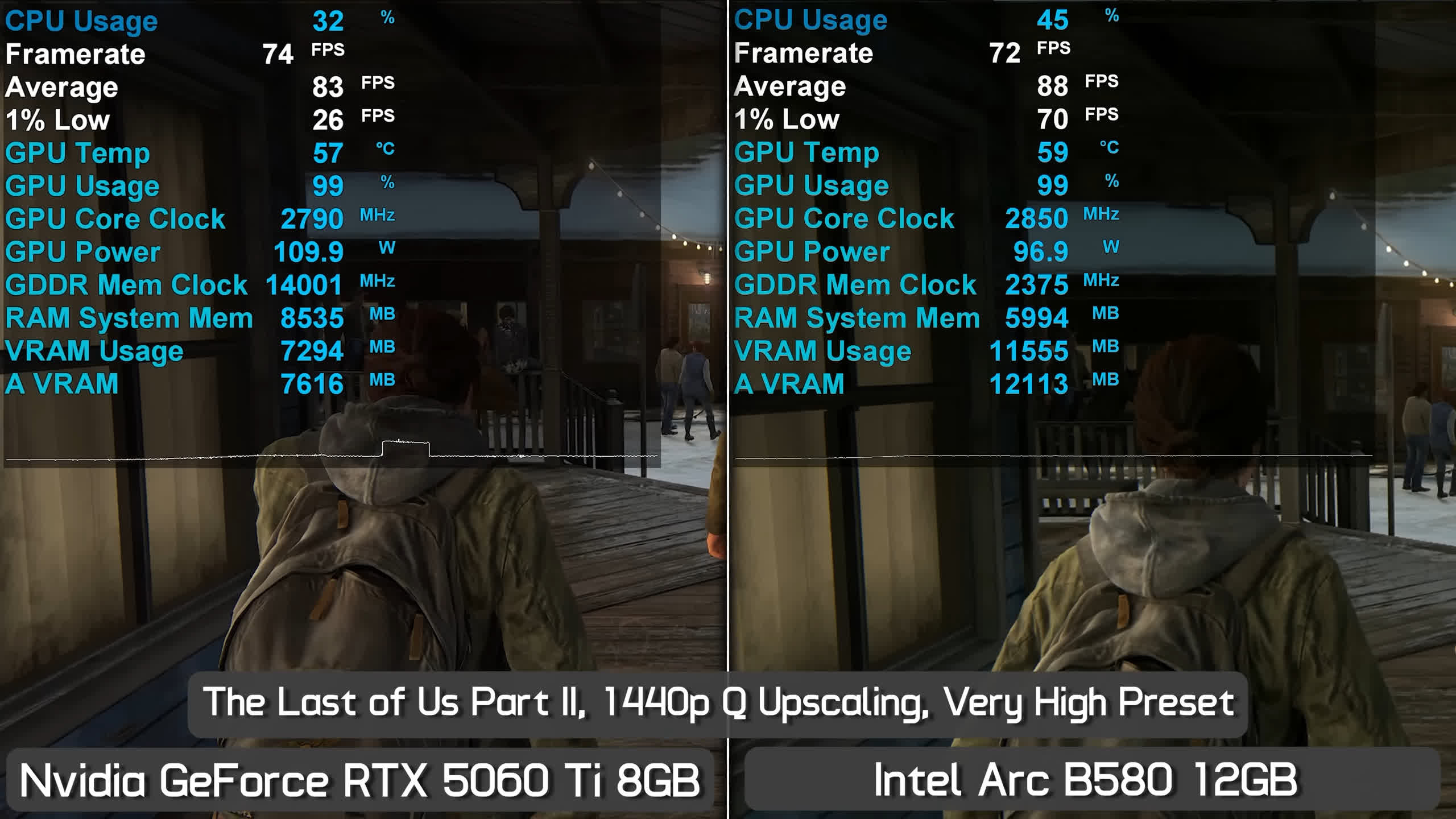
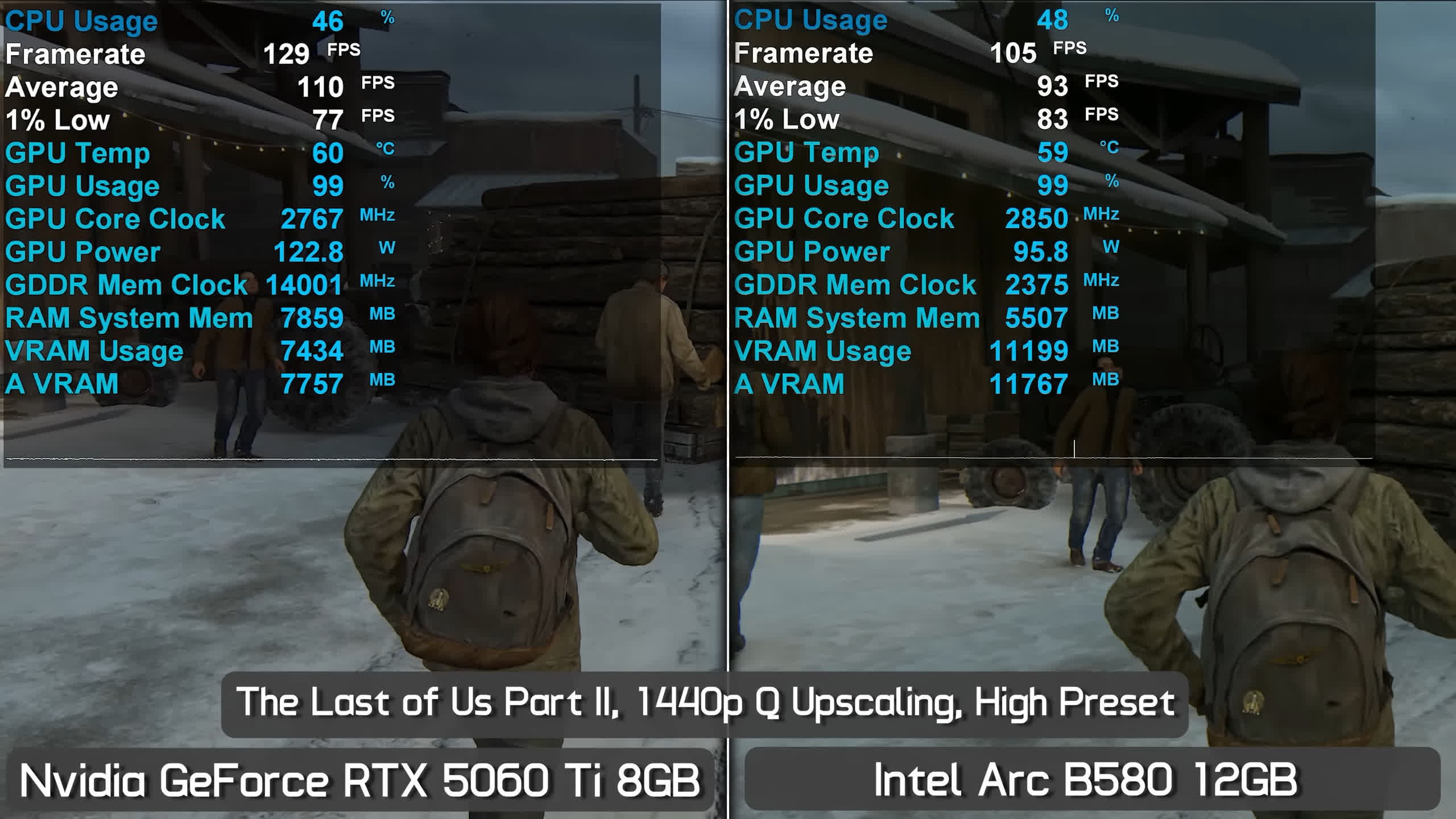
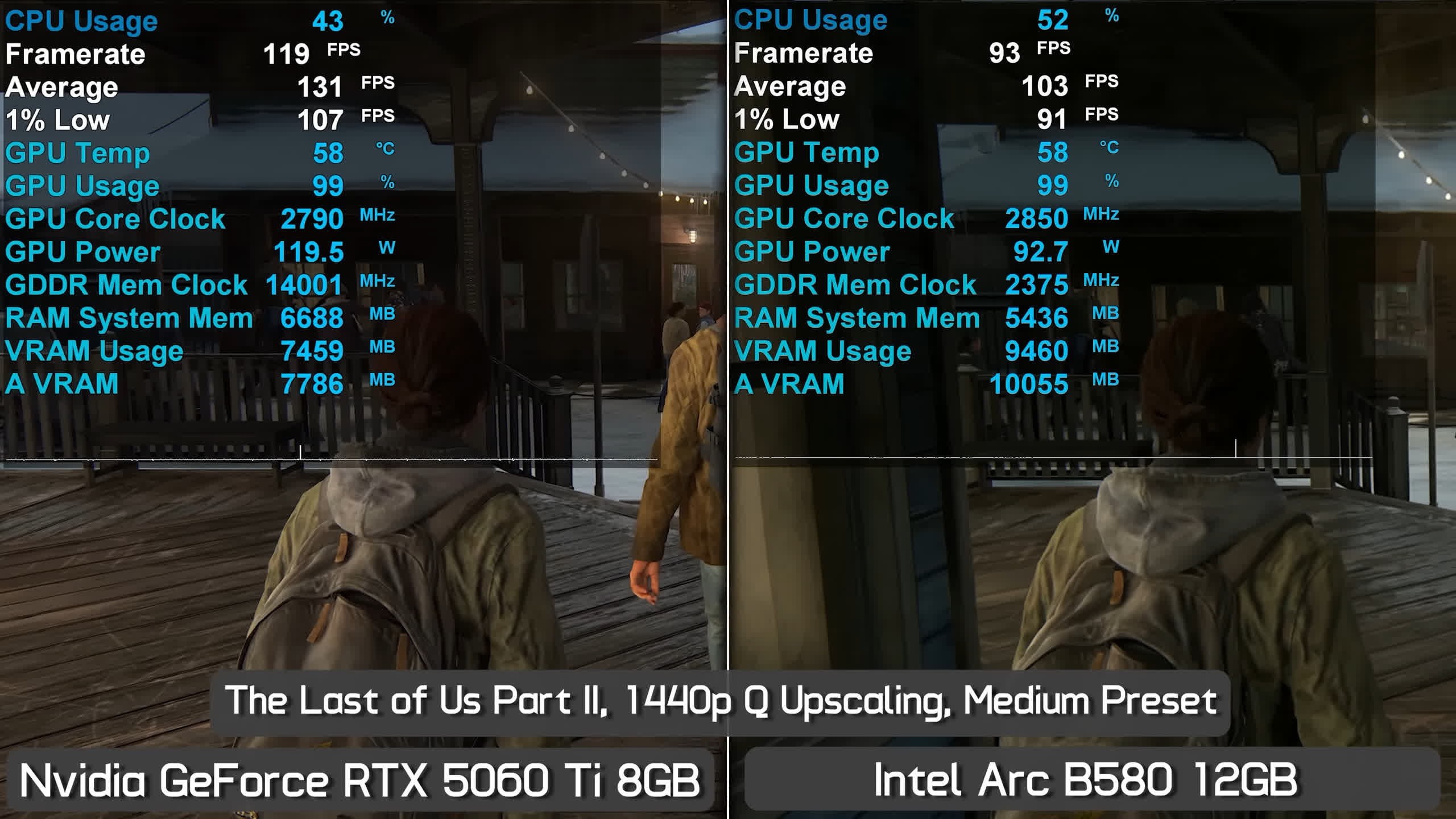
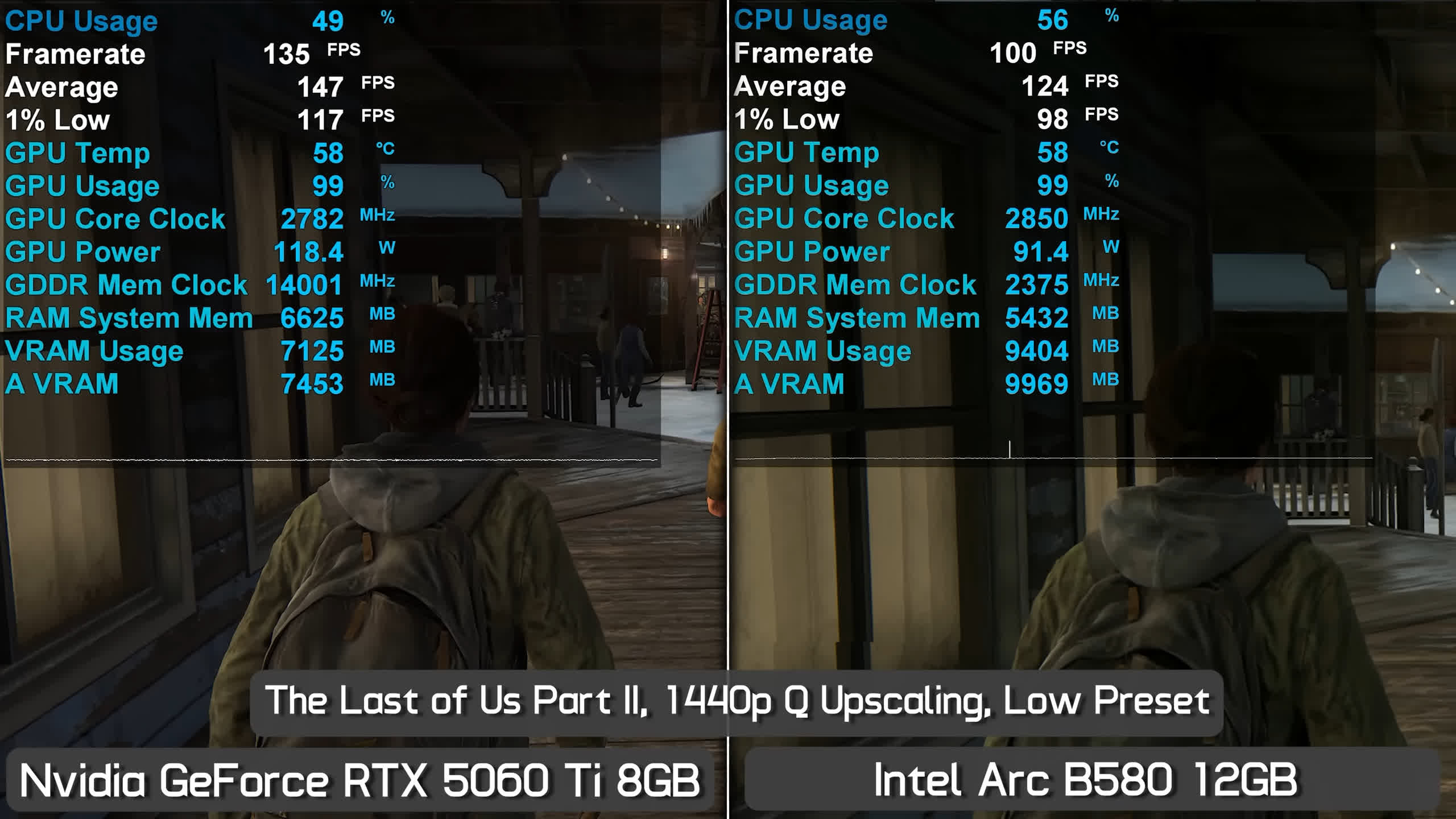
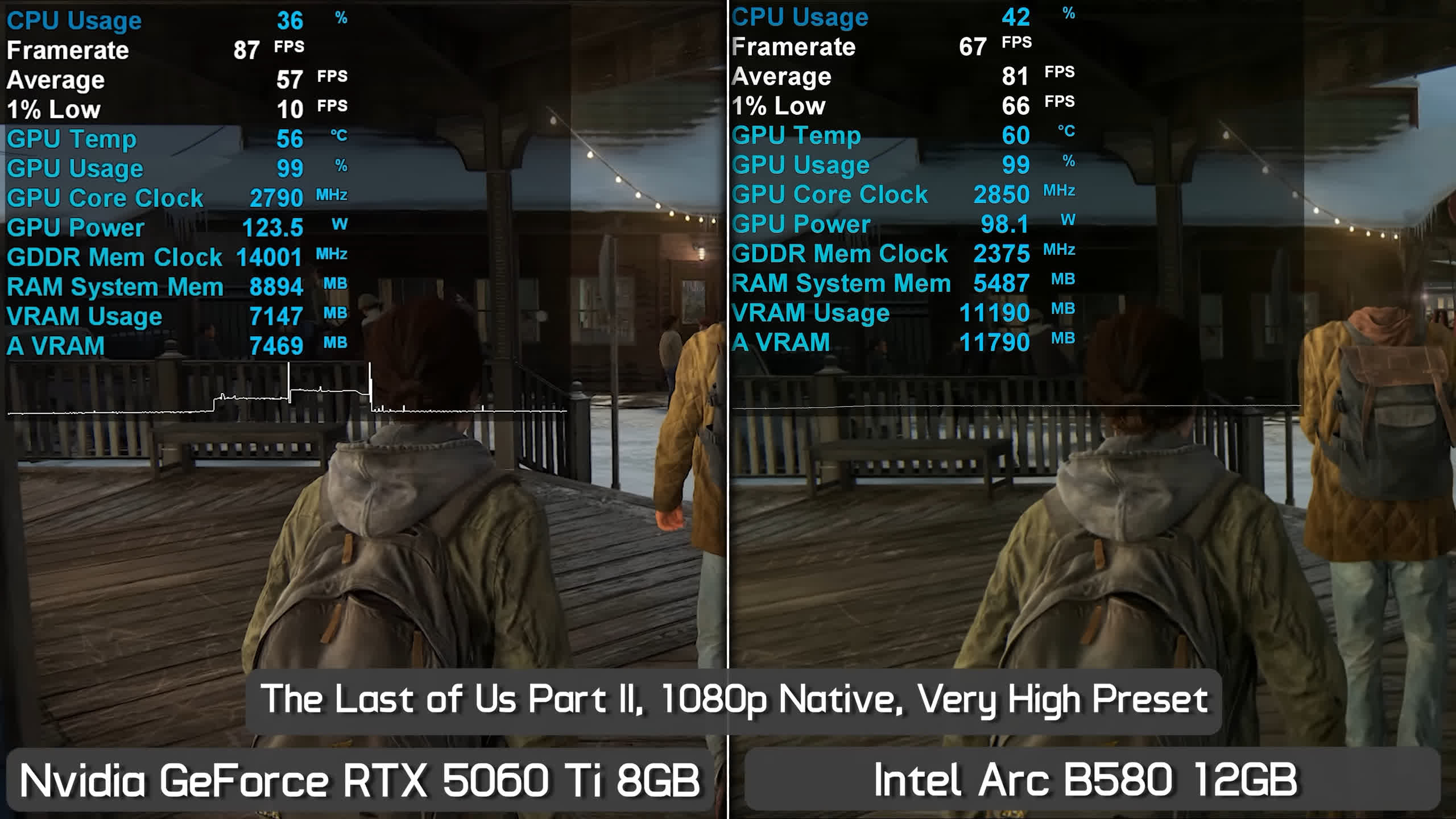
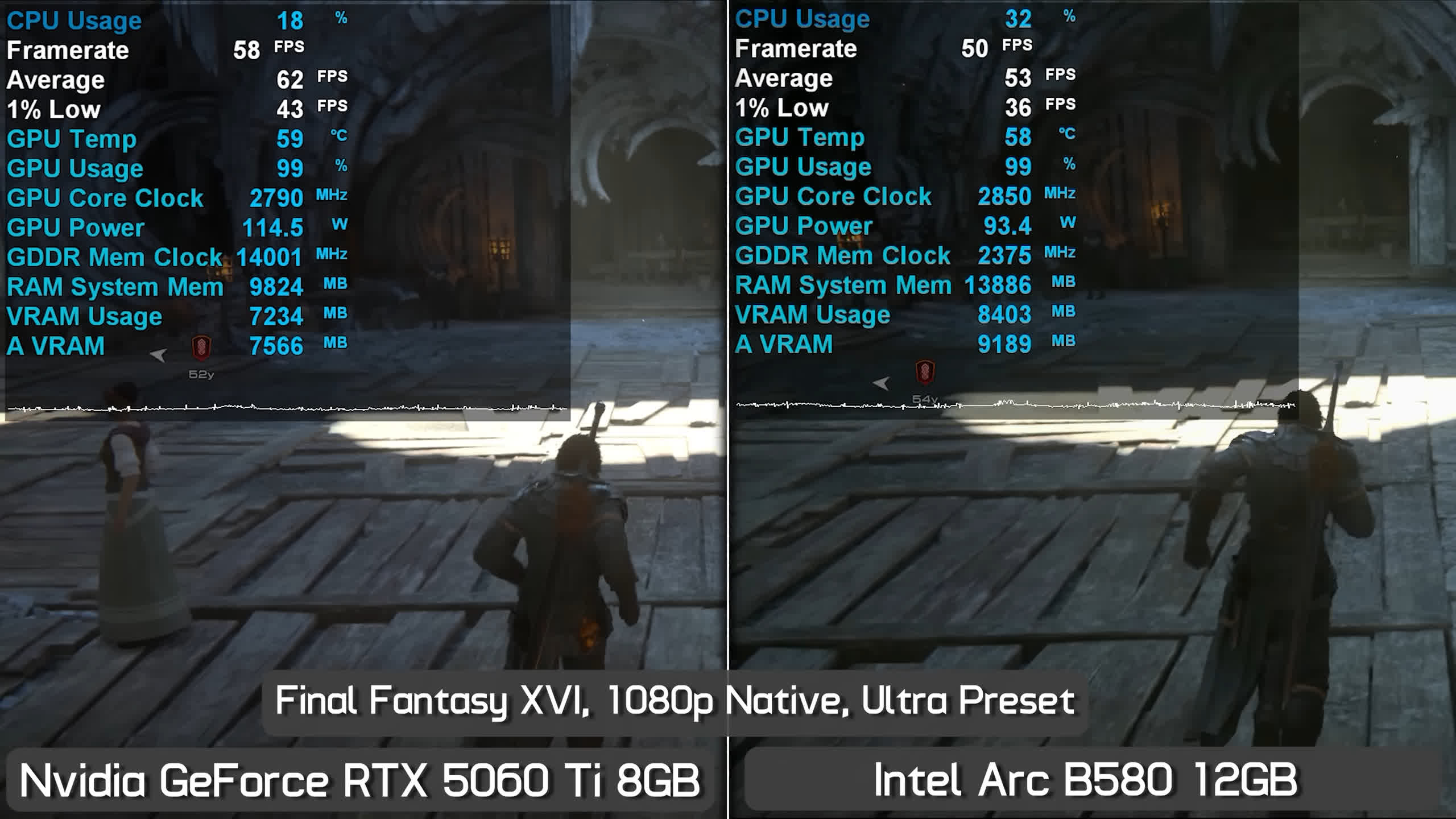
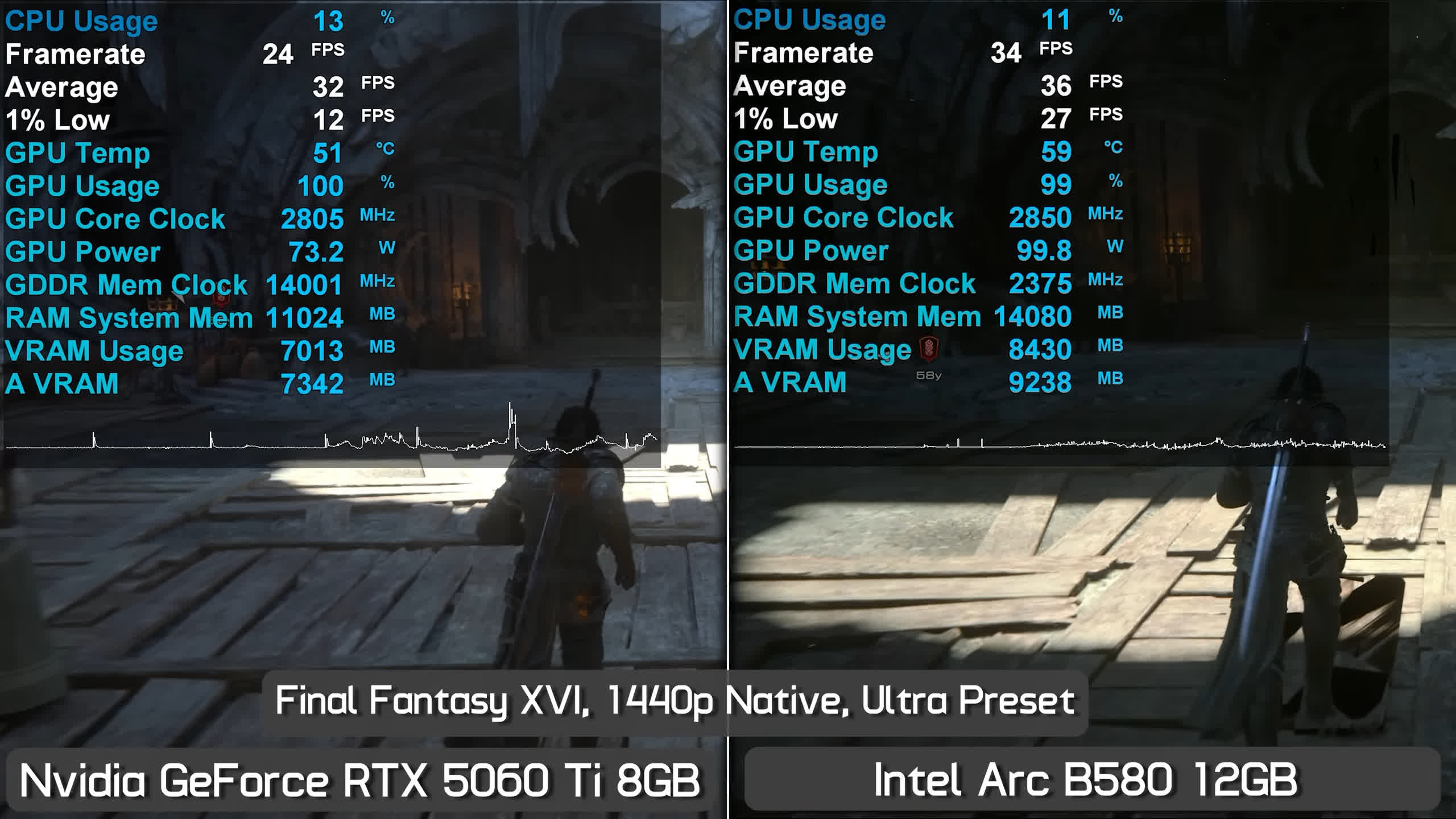
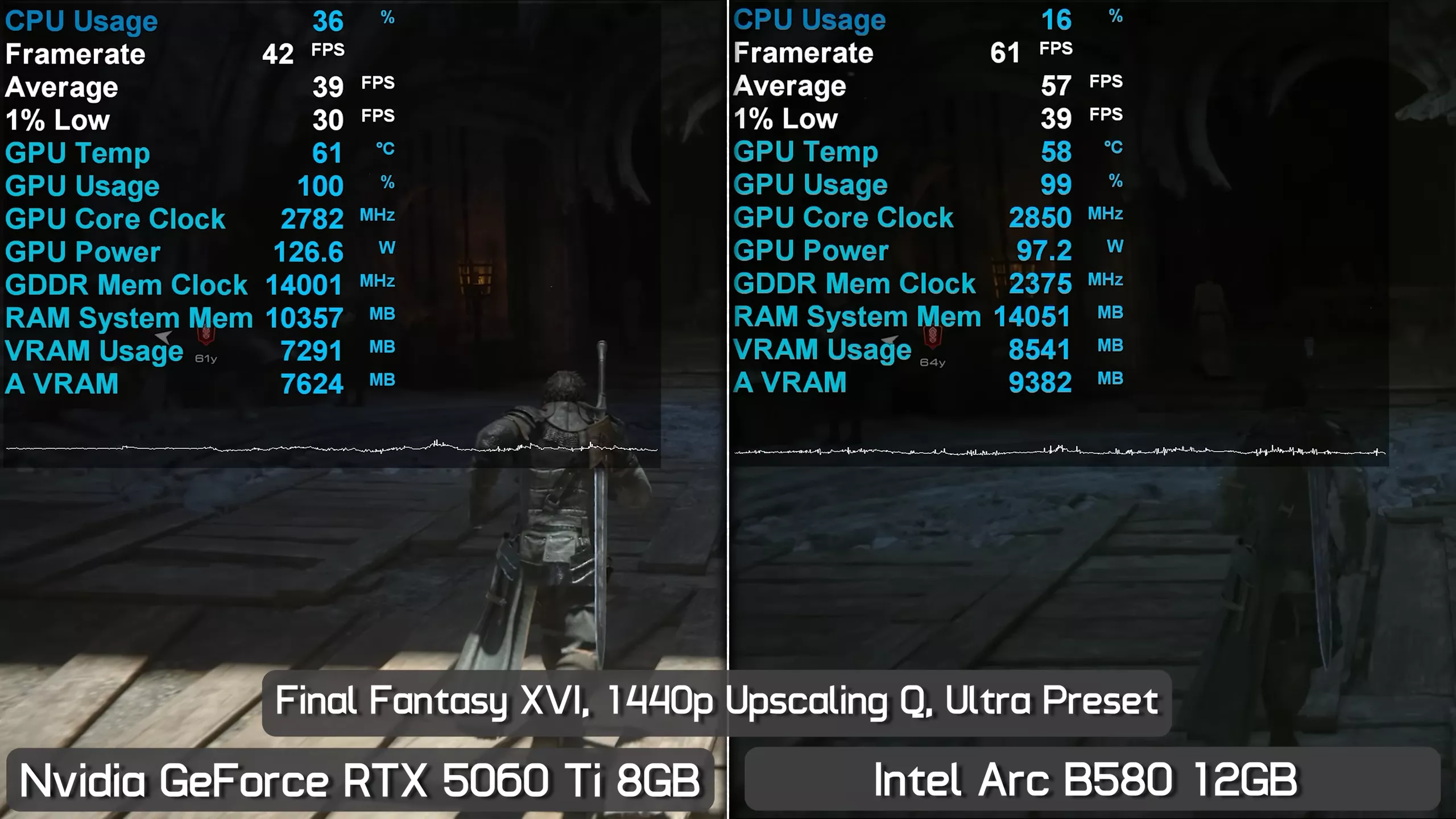
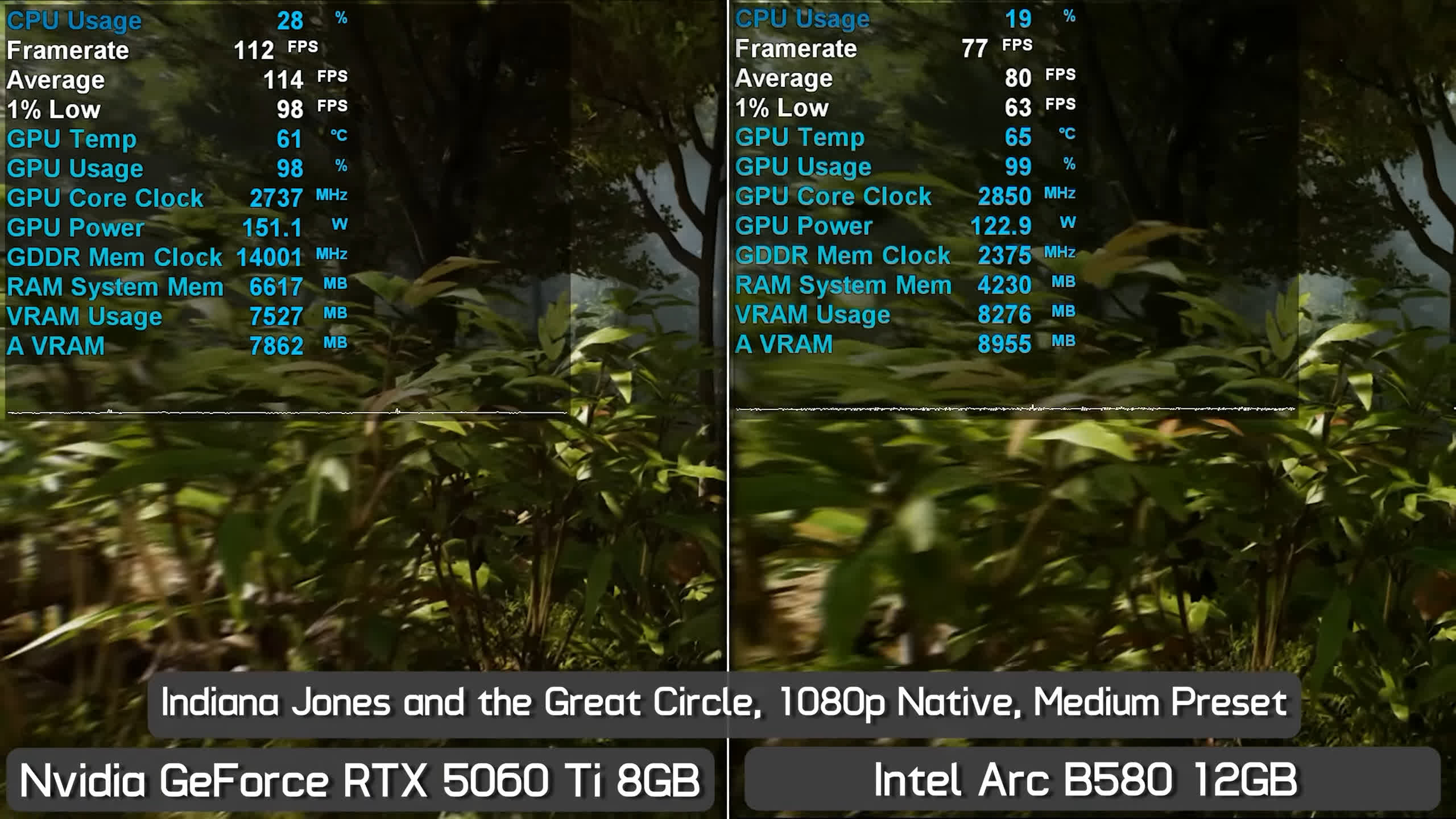
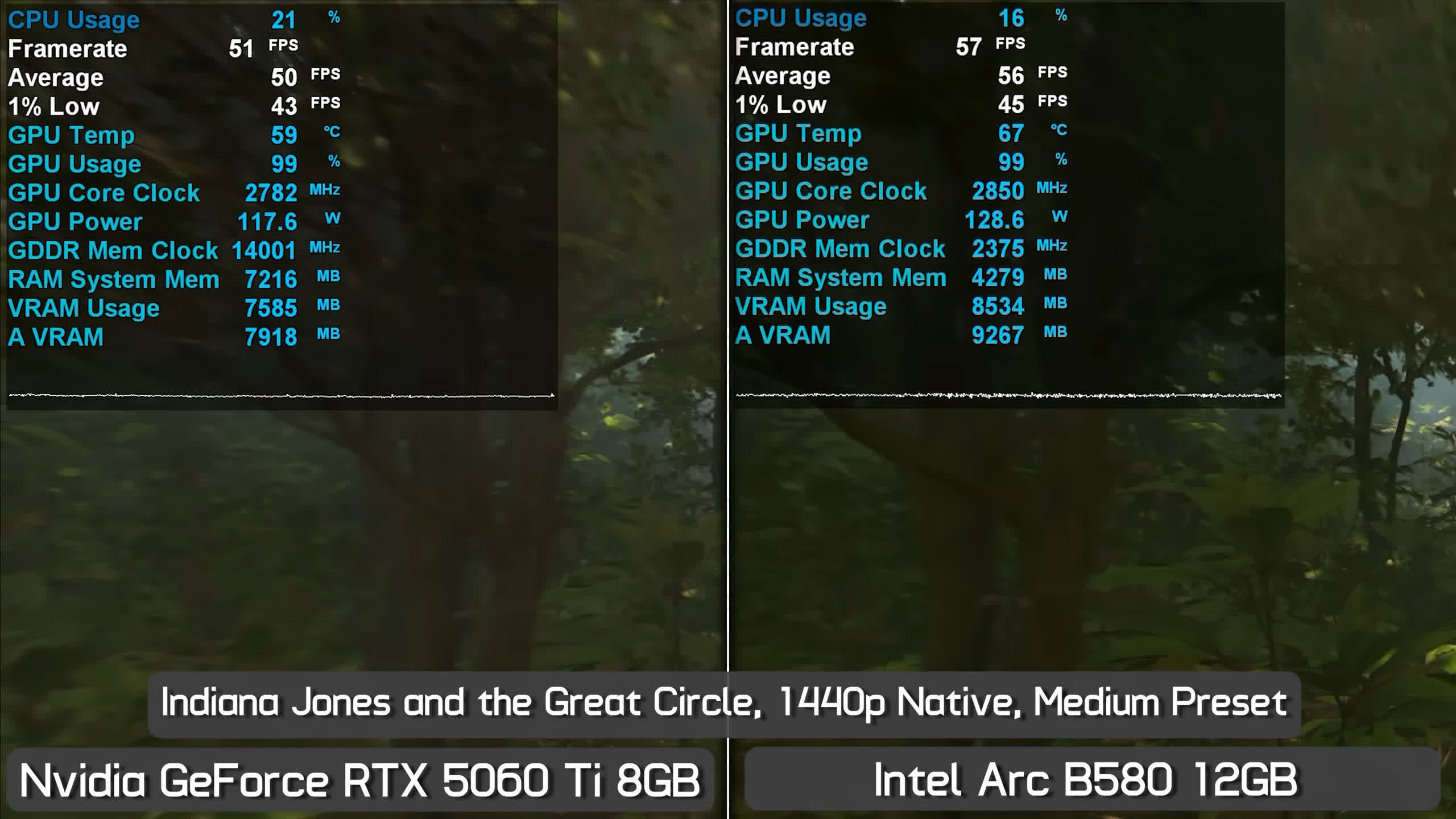

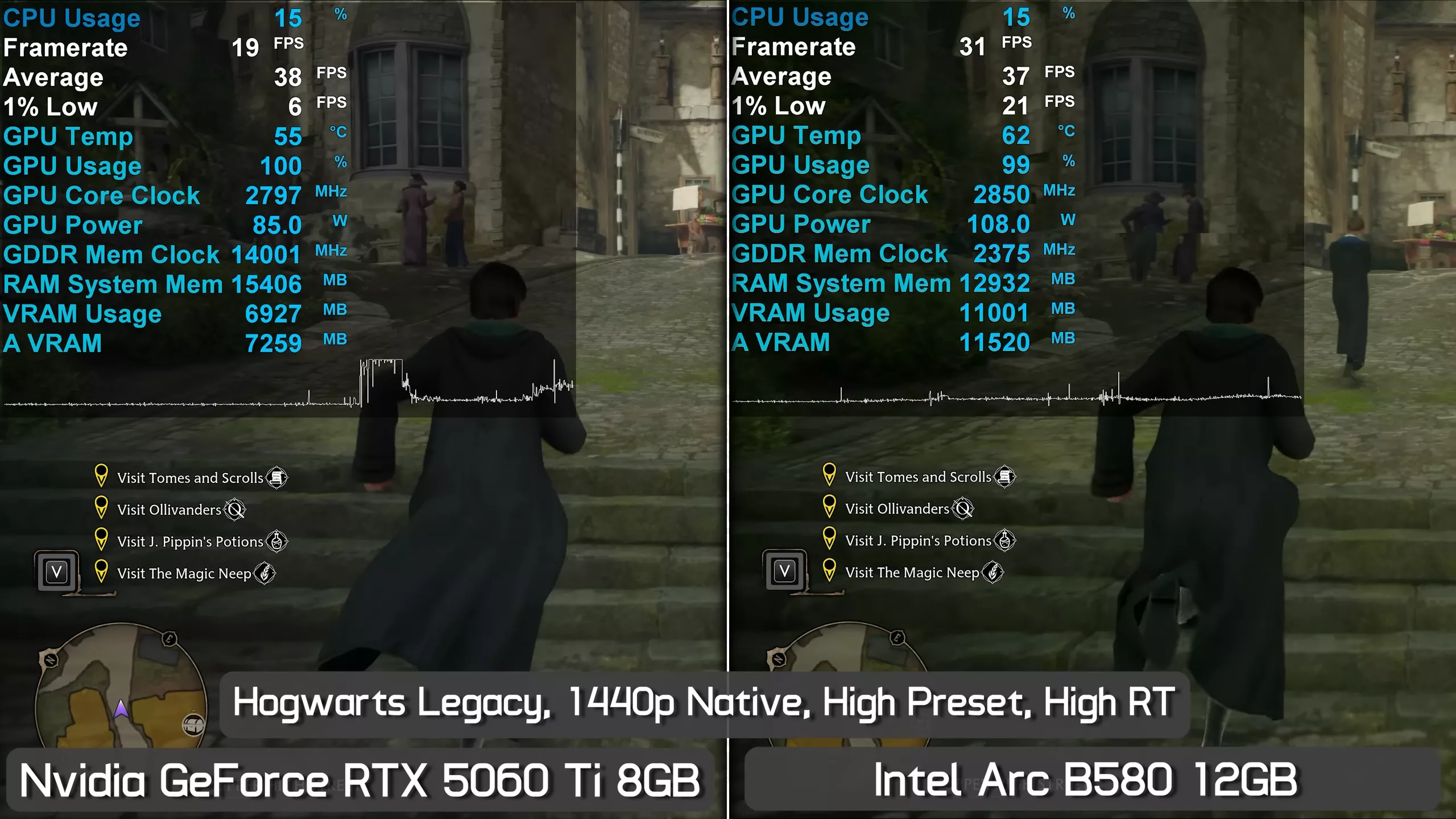
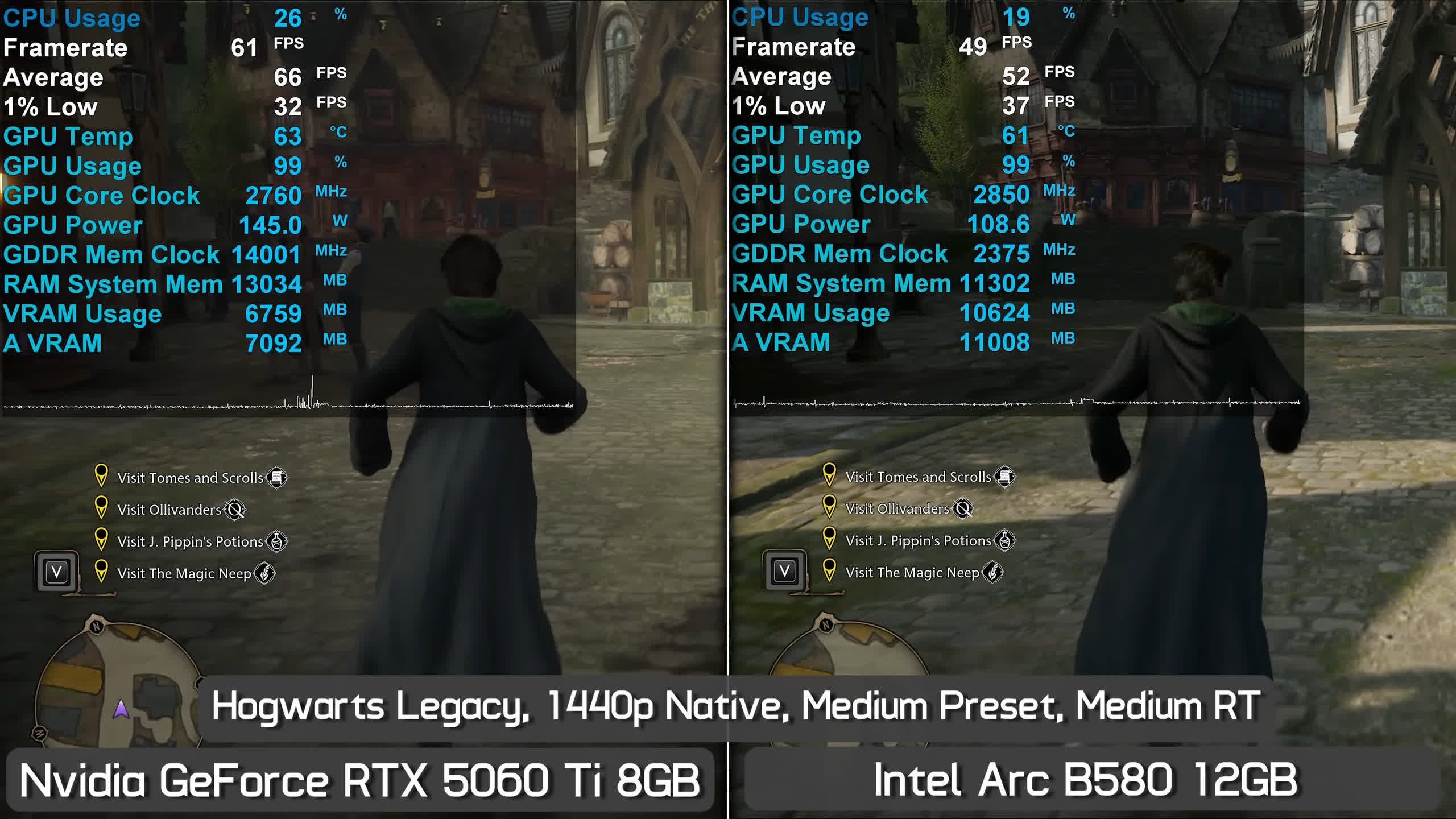
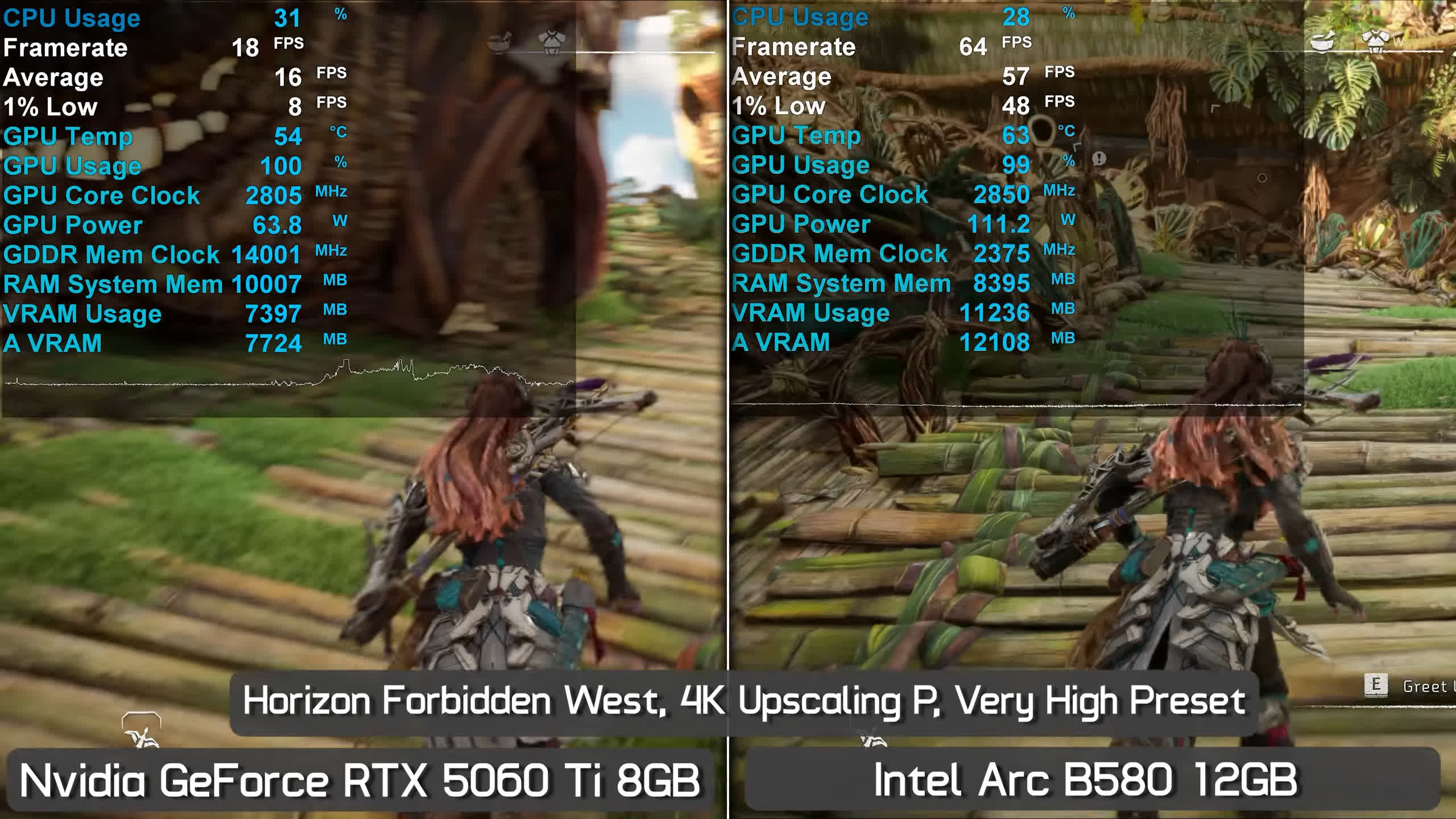
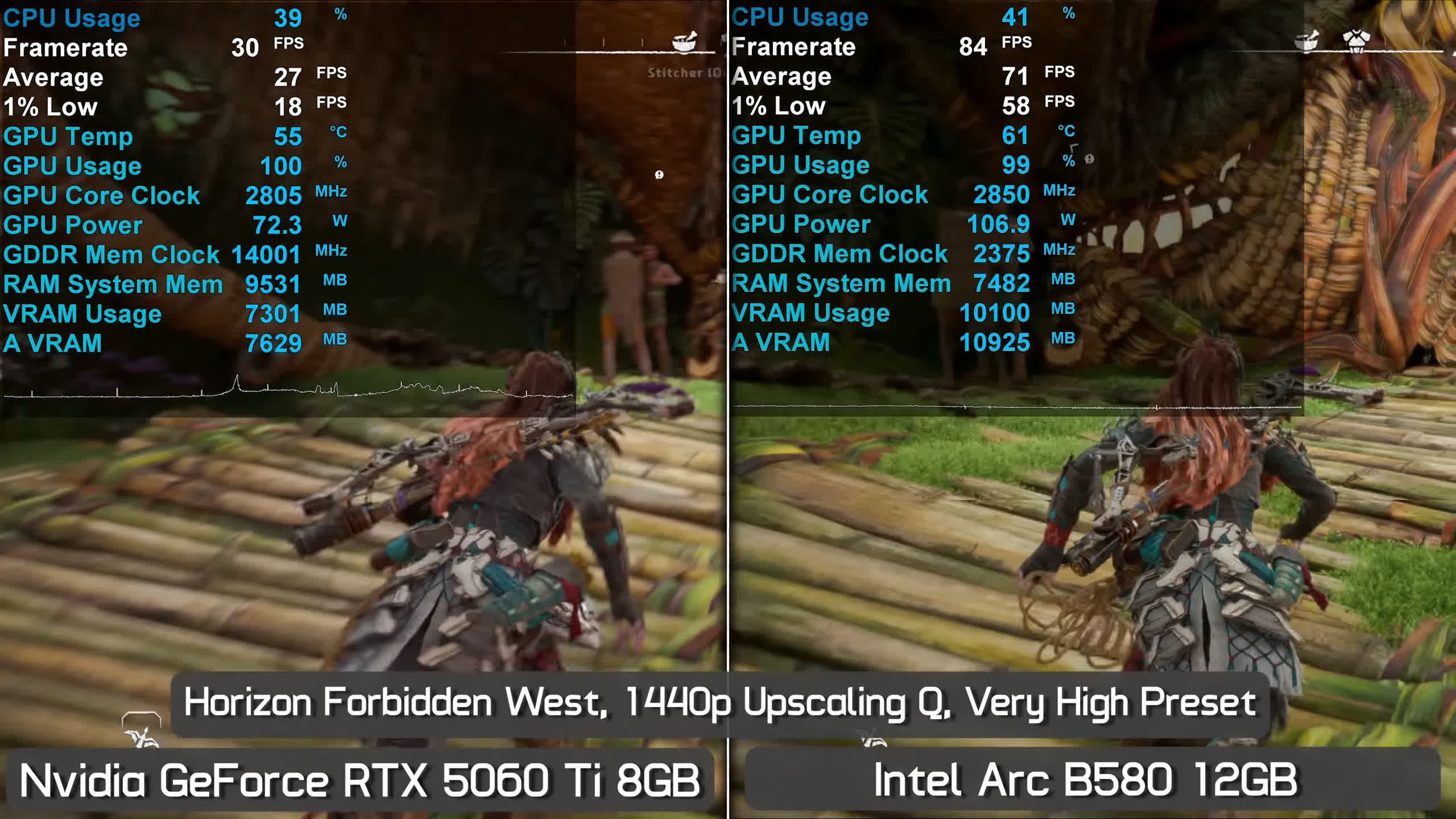
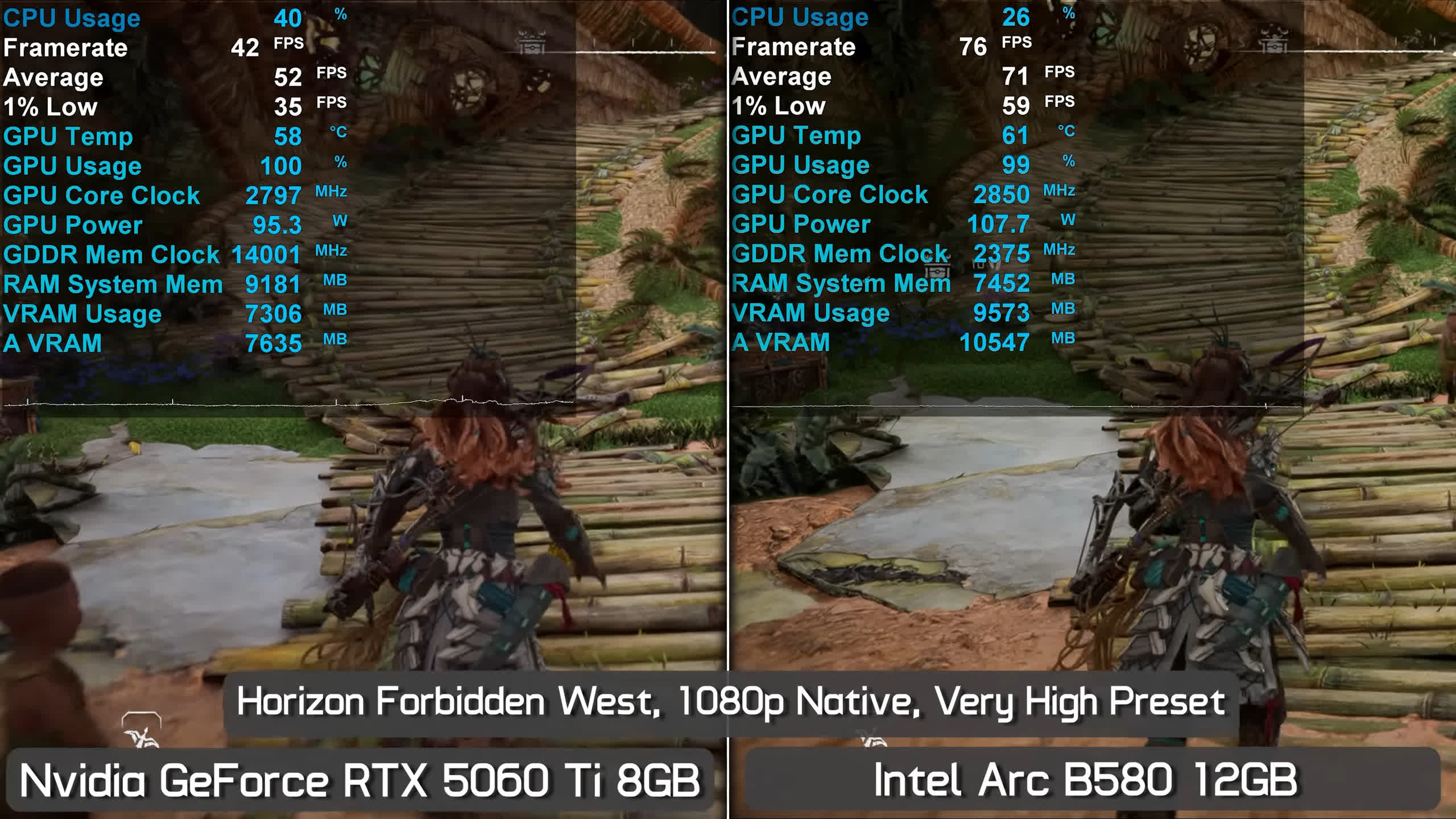
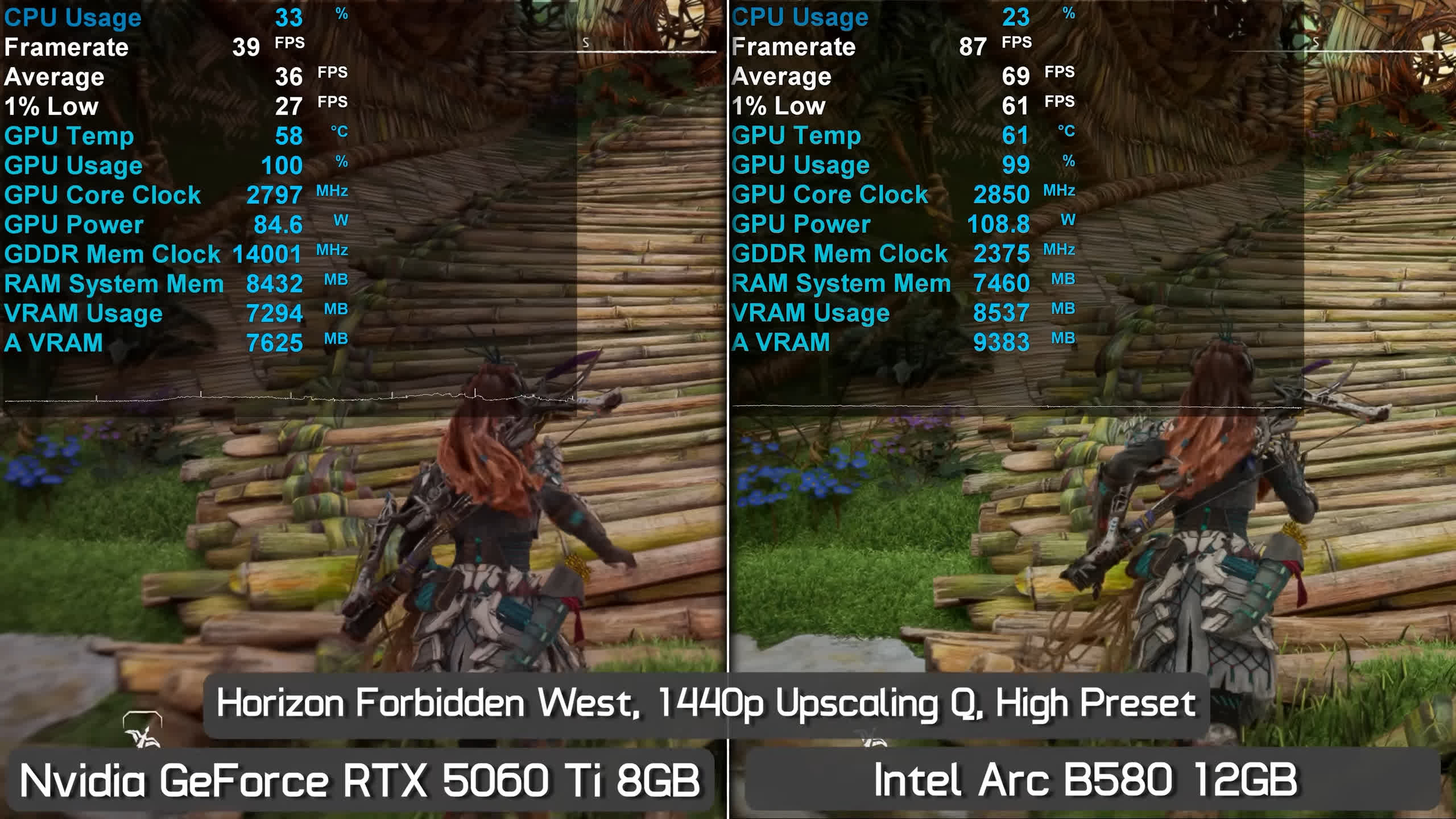
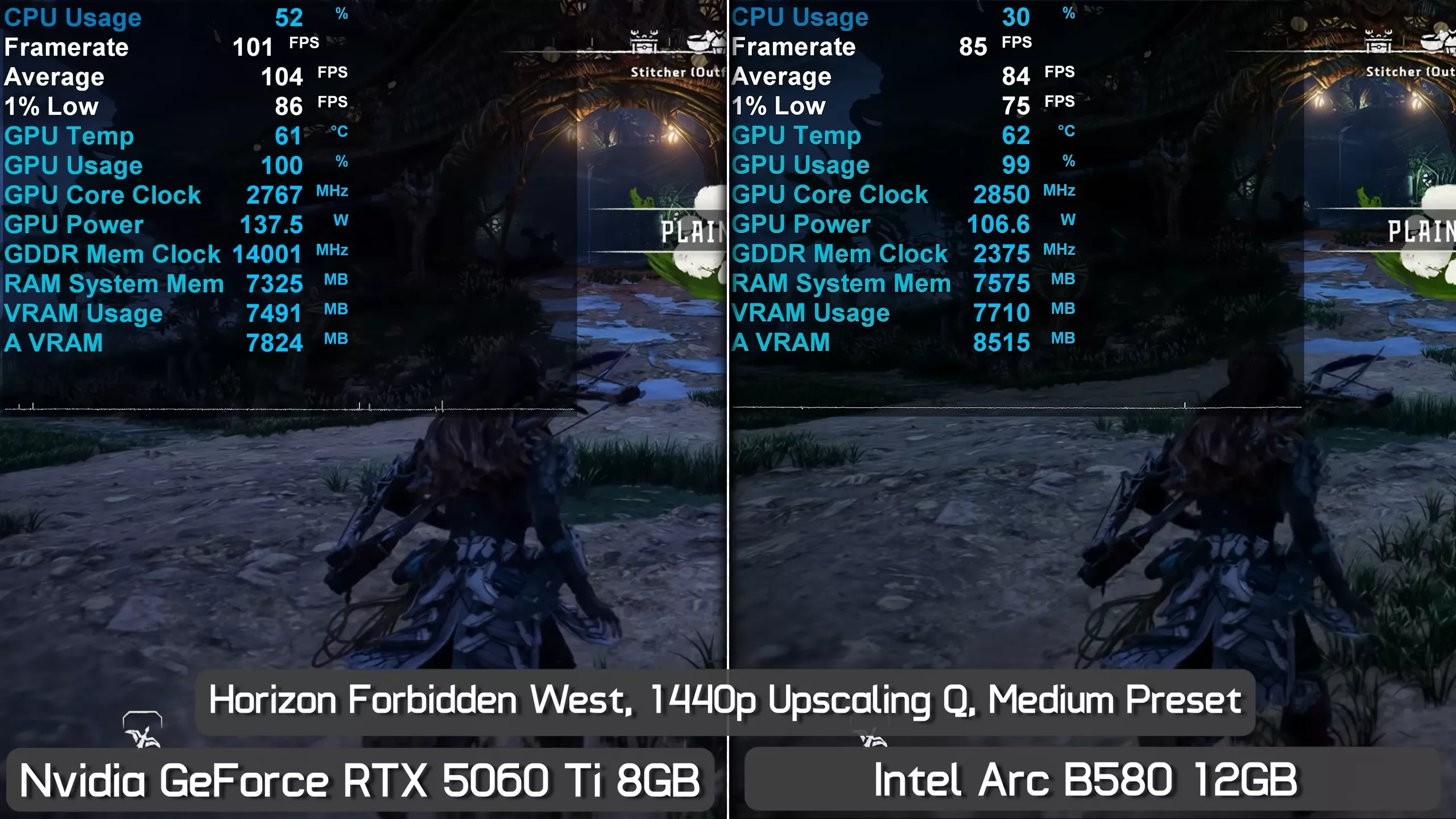
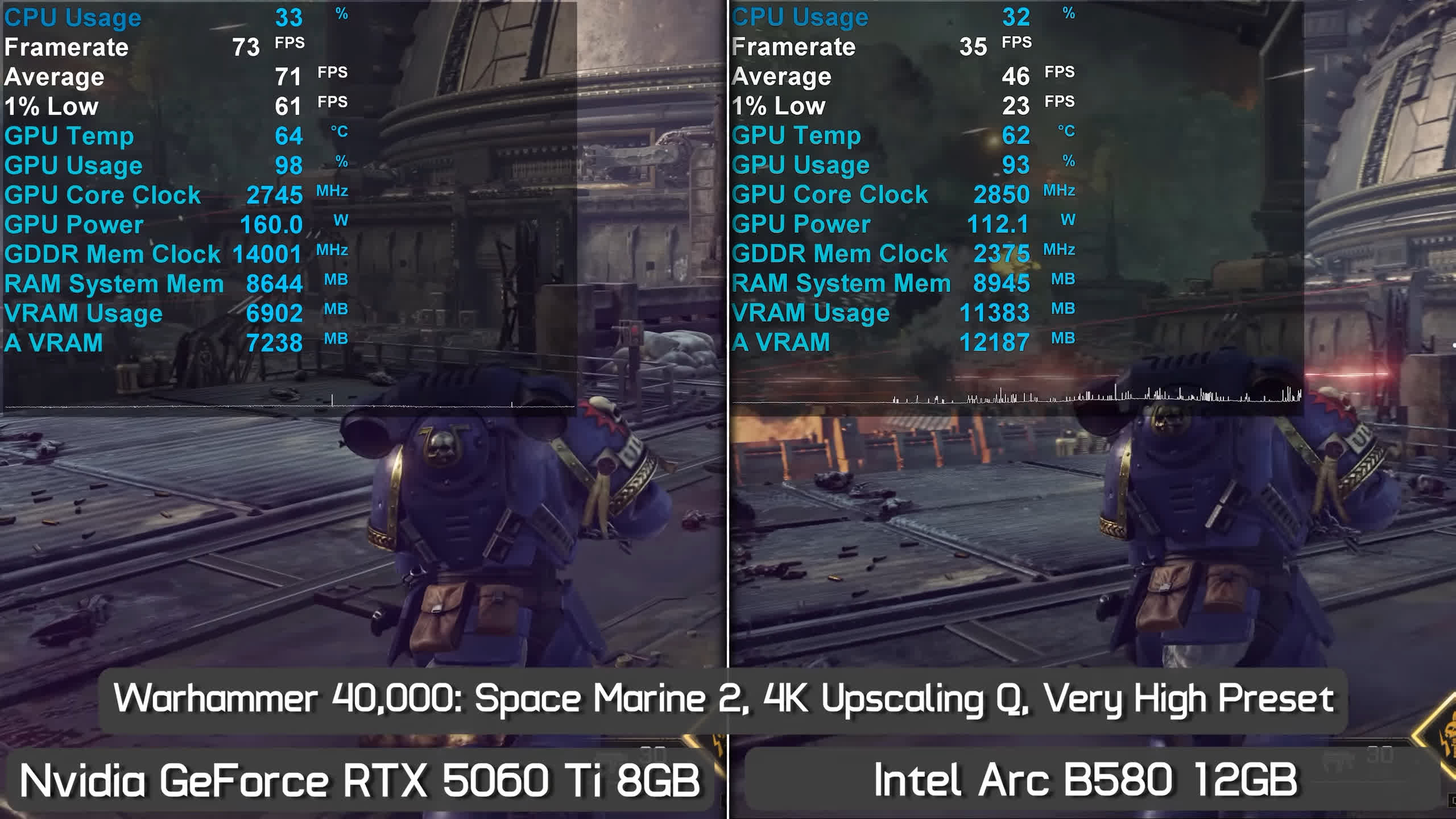
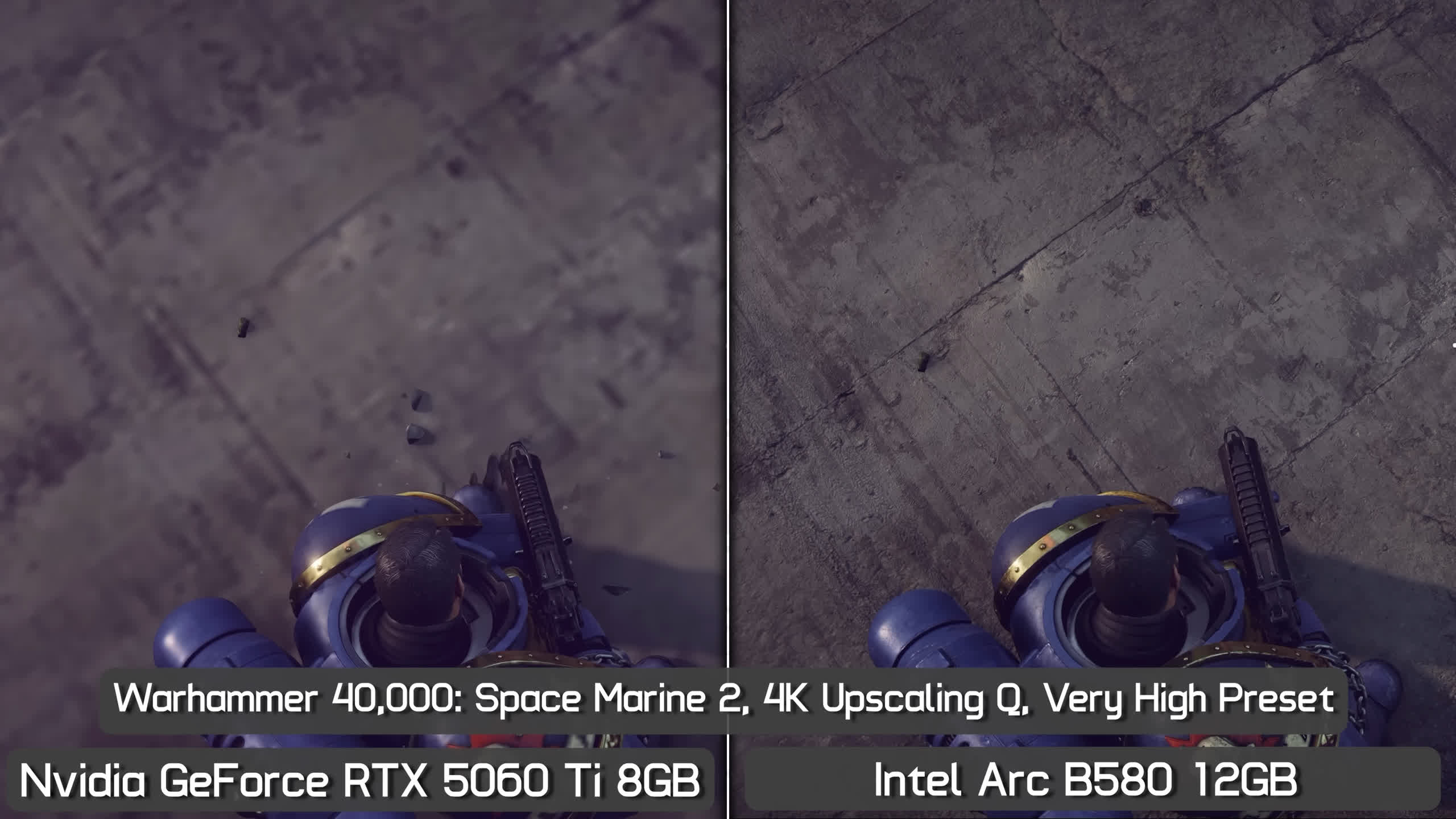
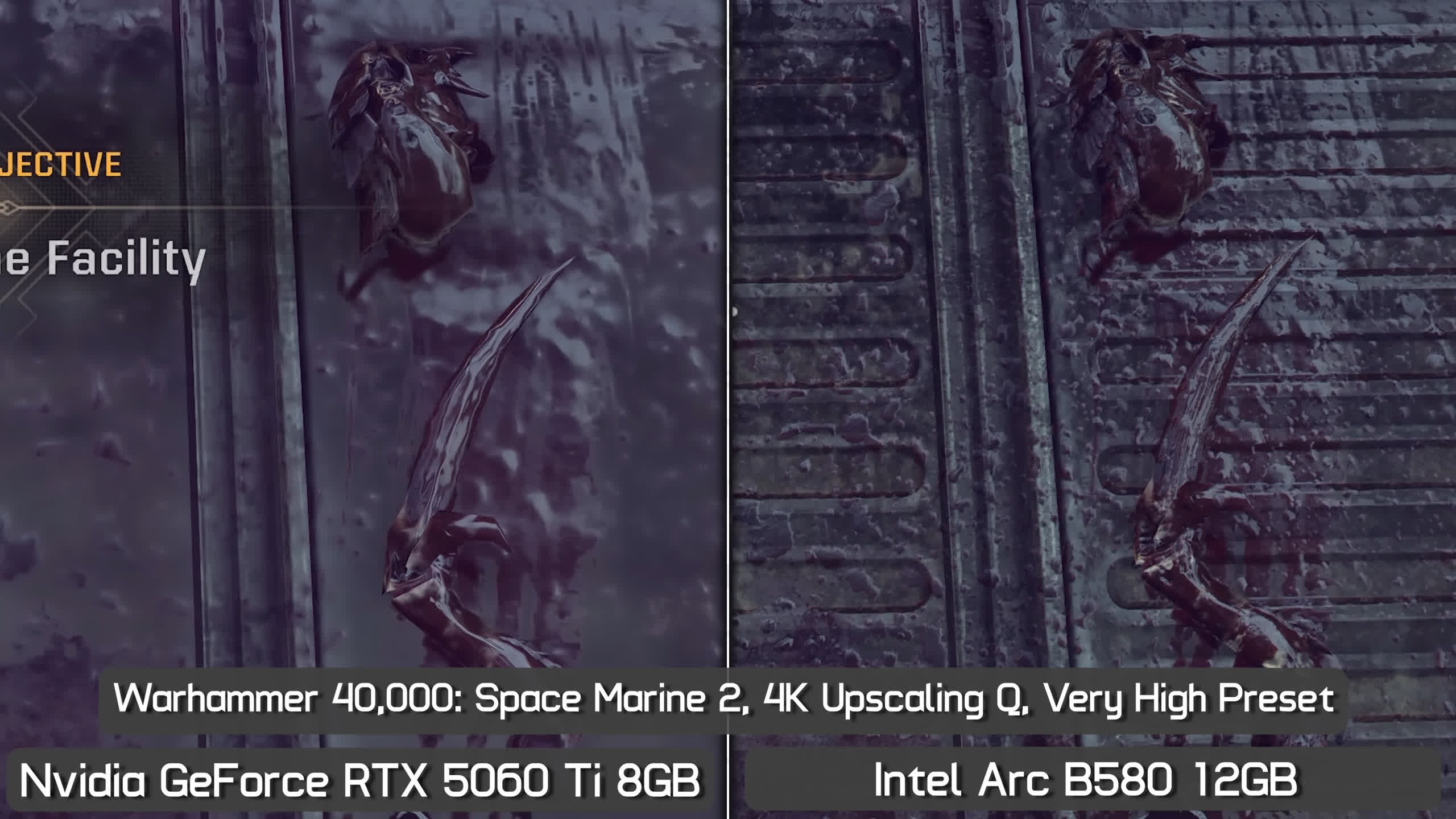
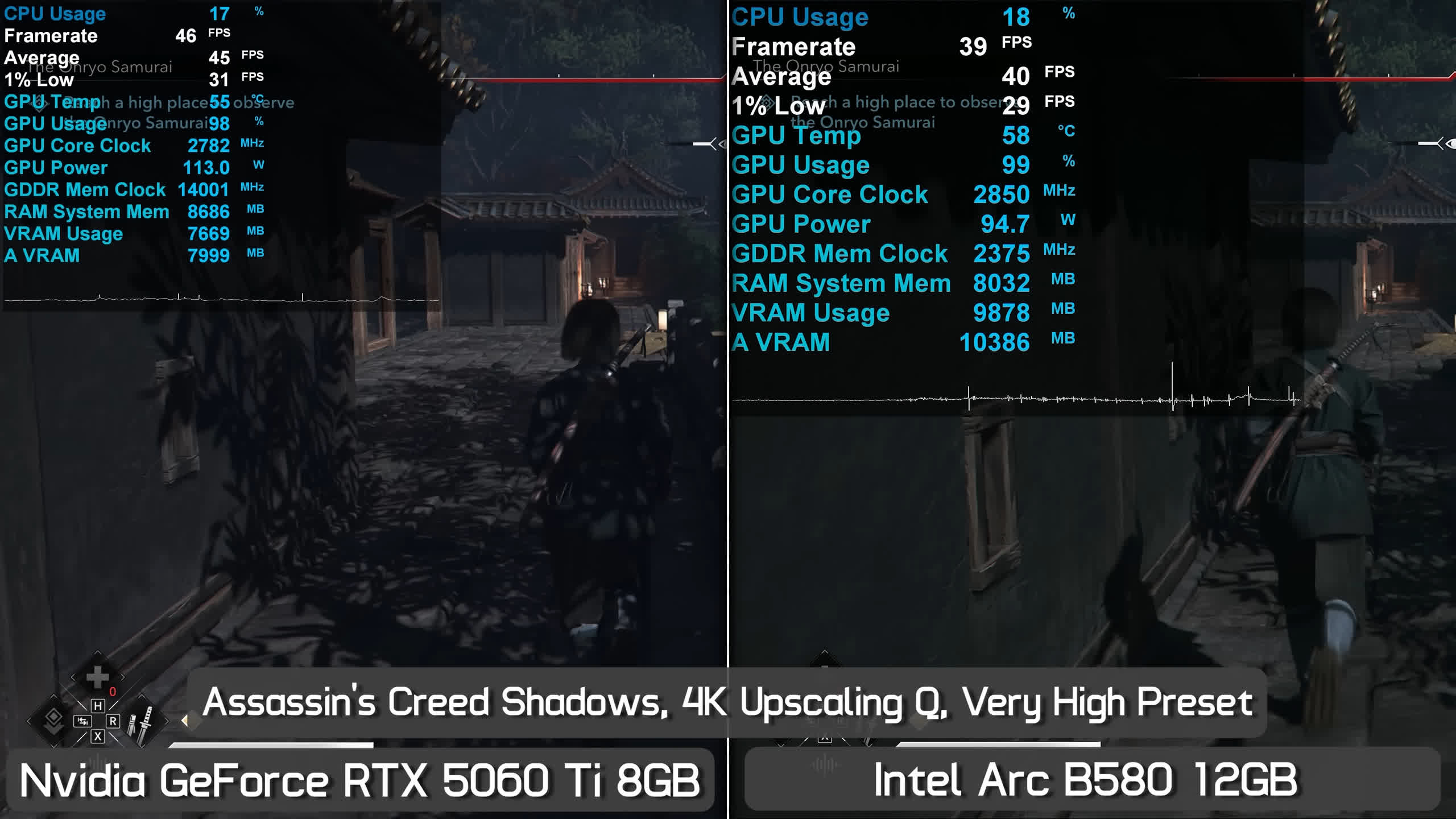
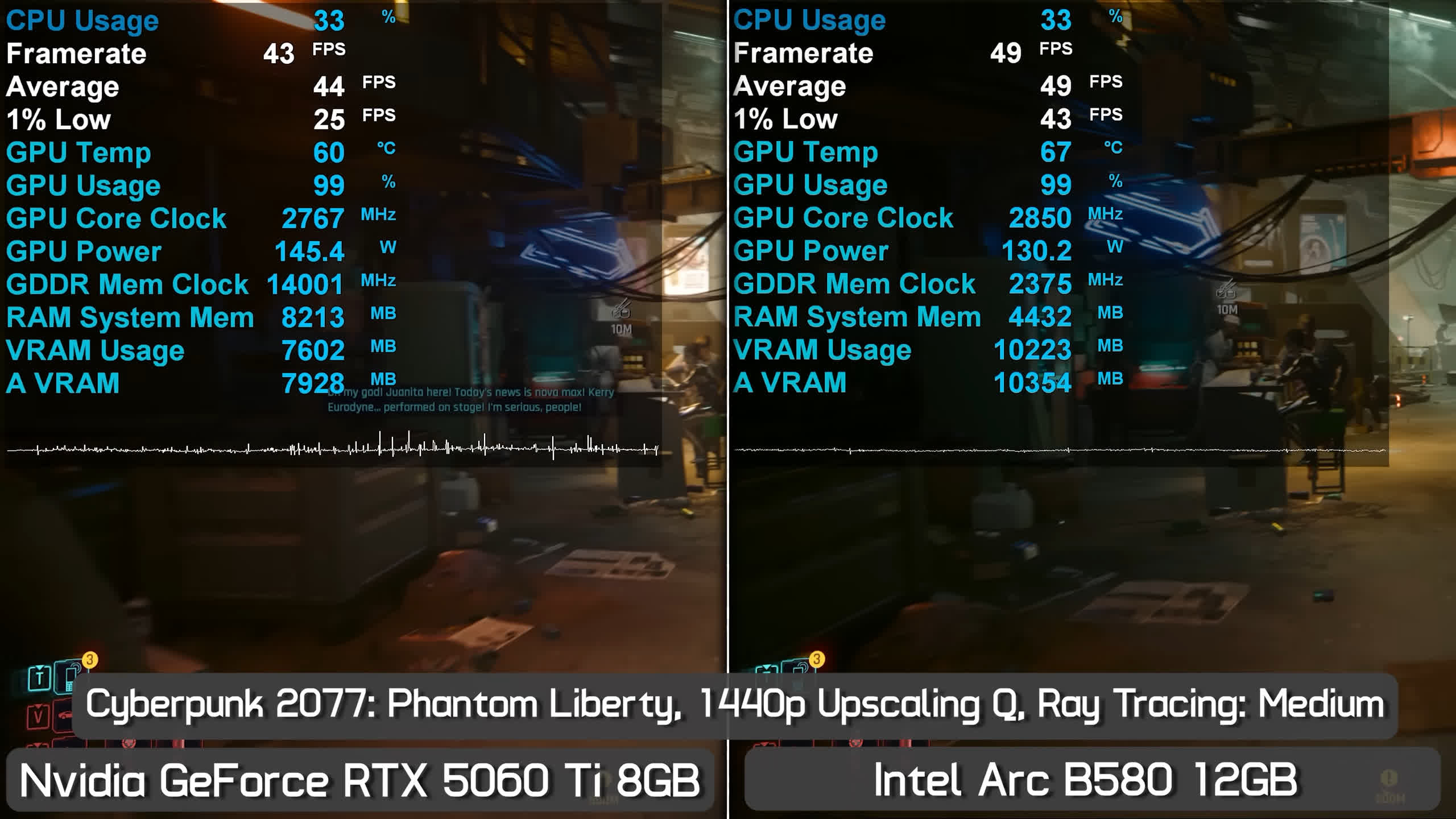
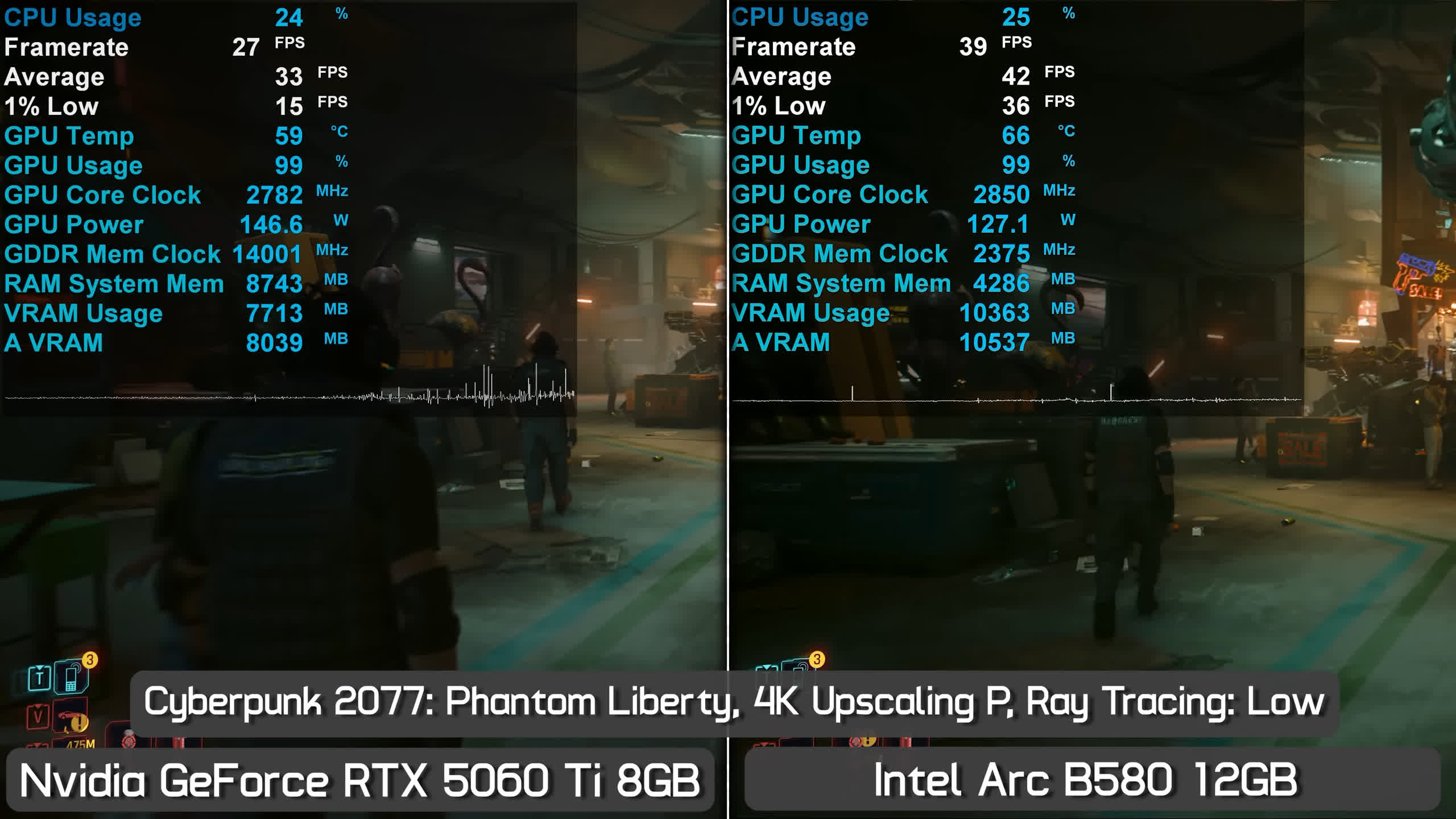
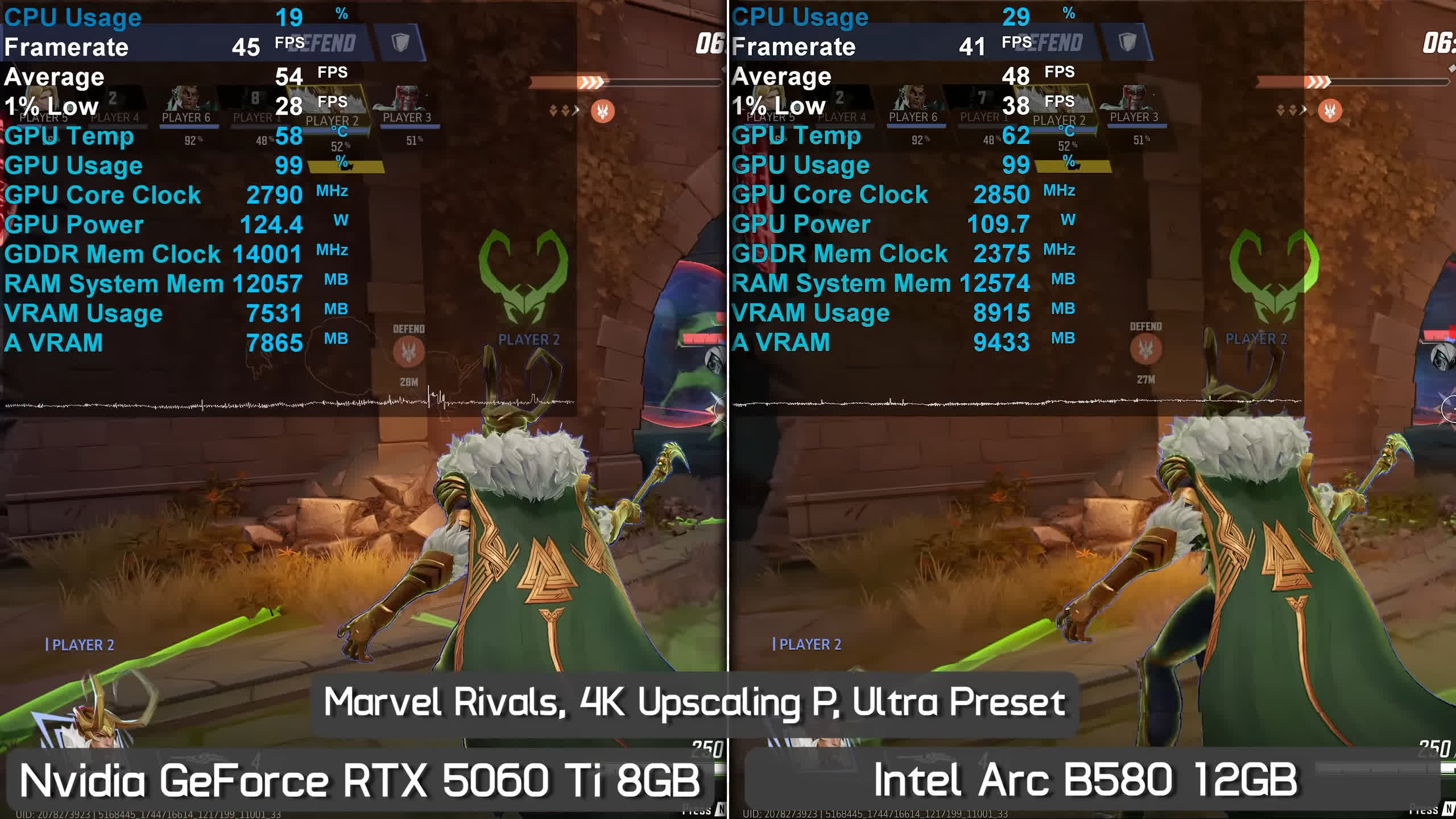
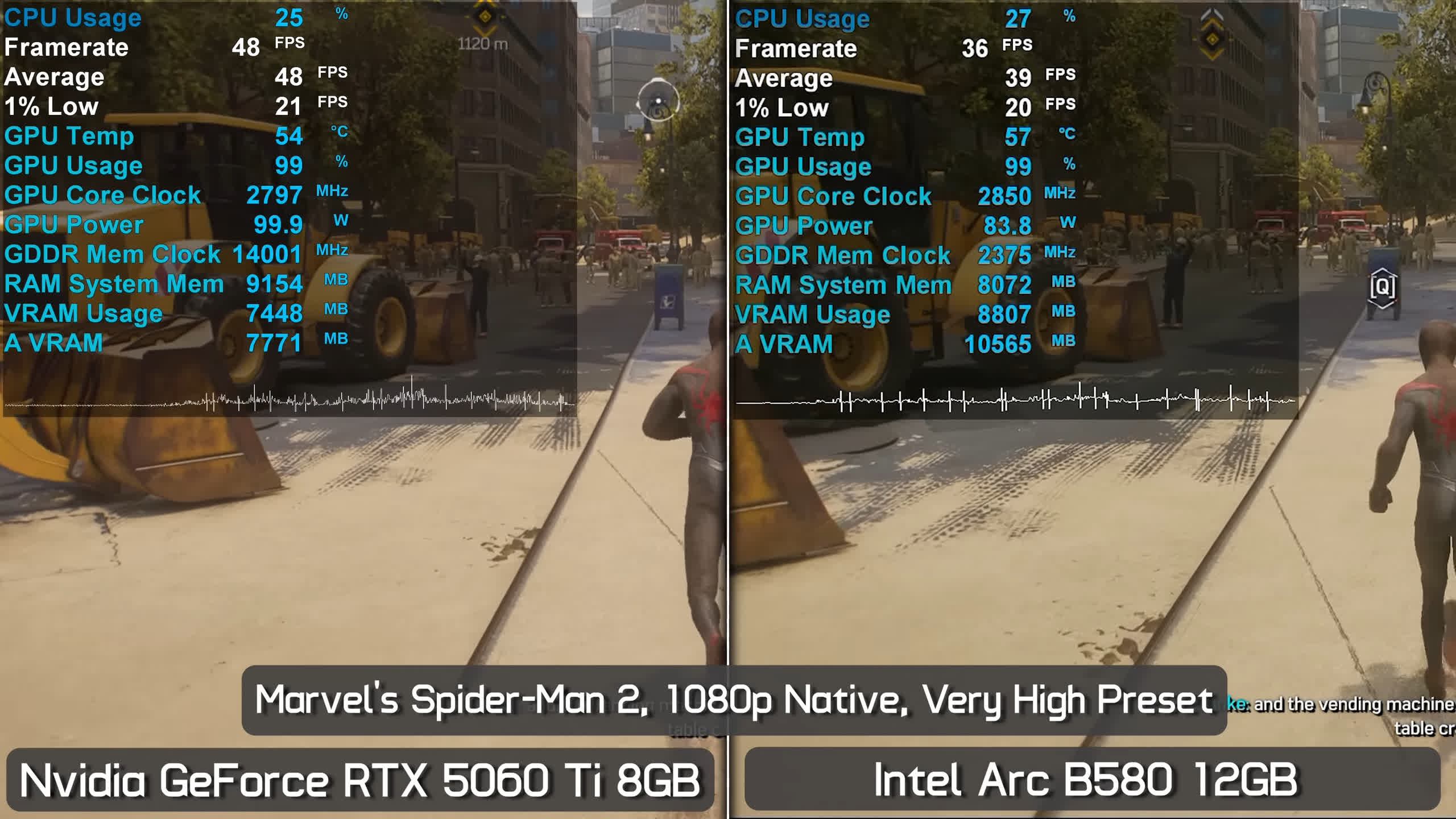
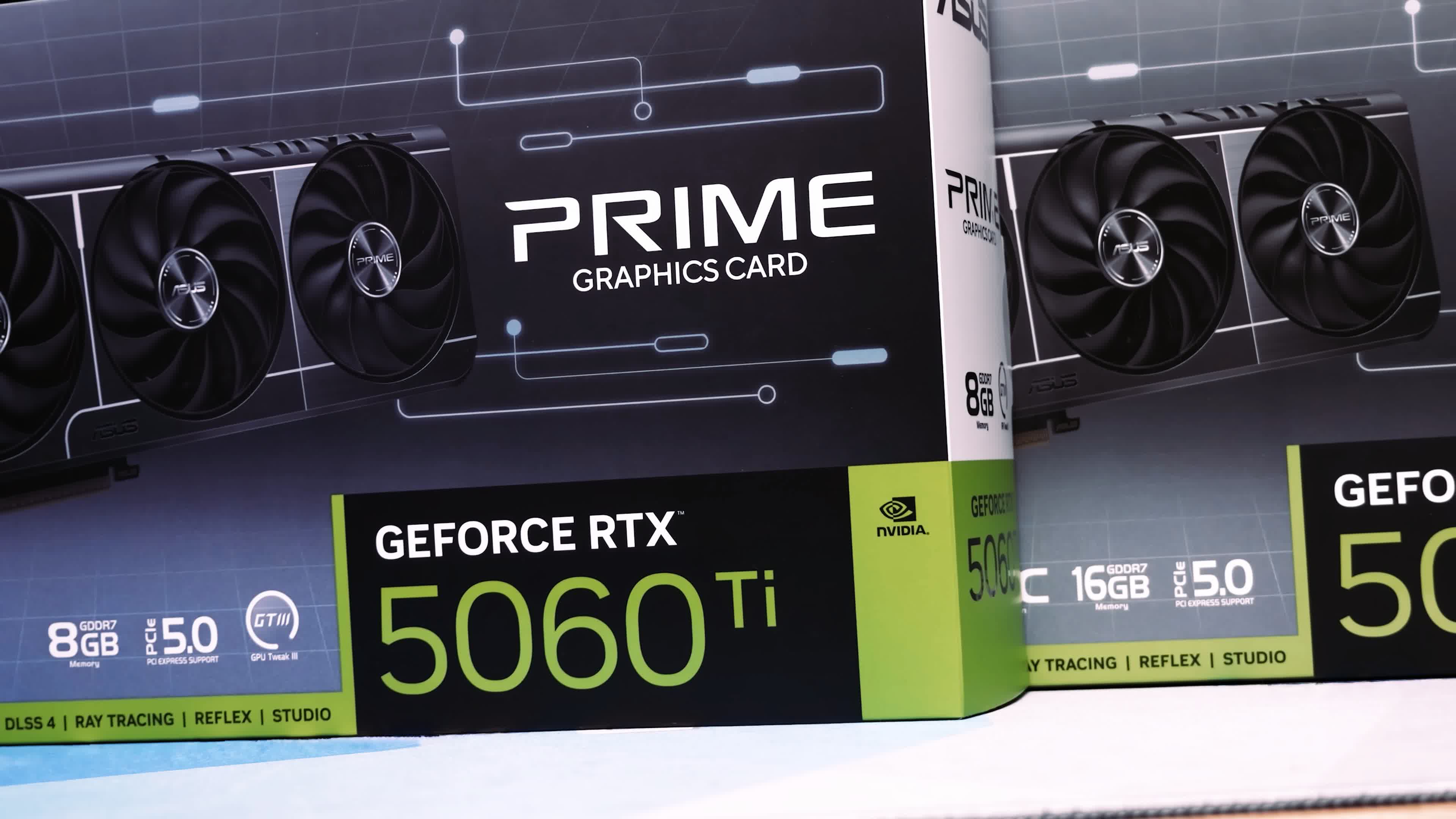
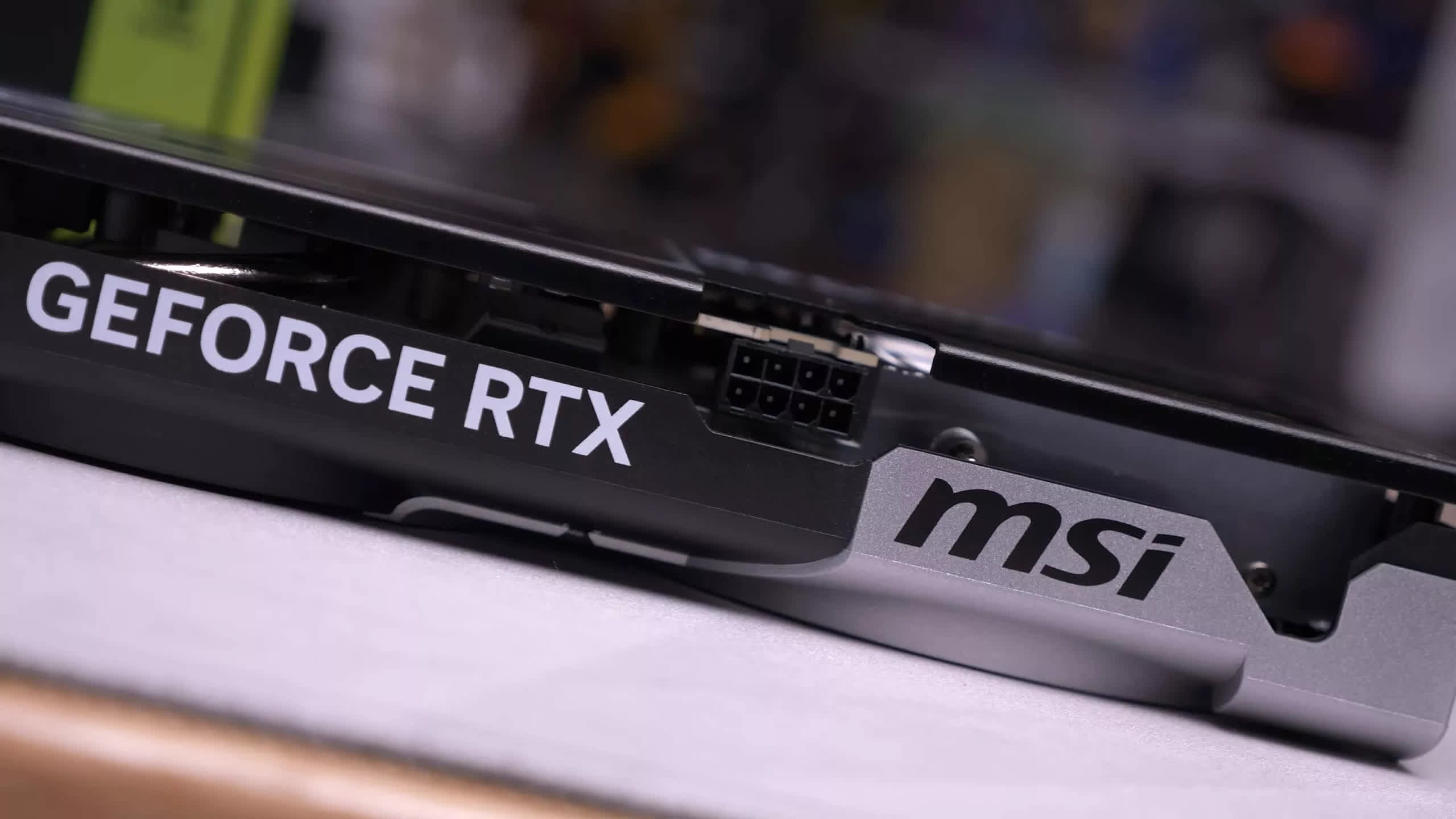


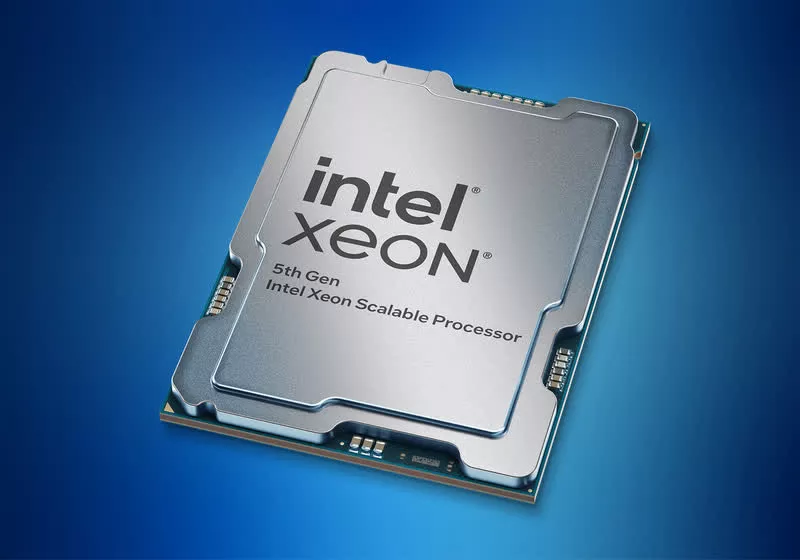






 English (US) ·
English (US) ·